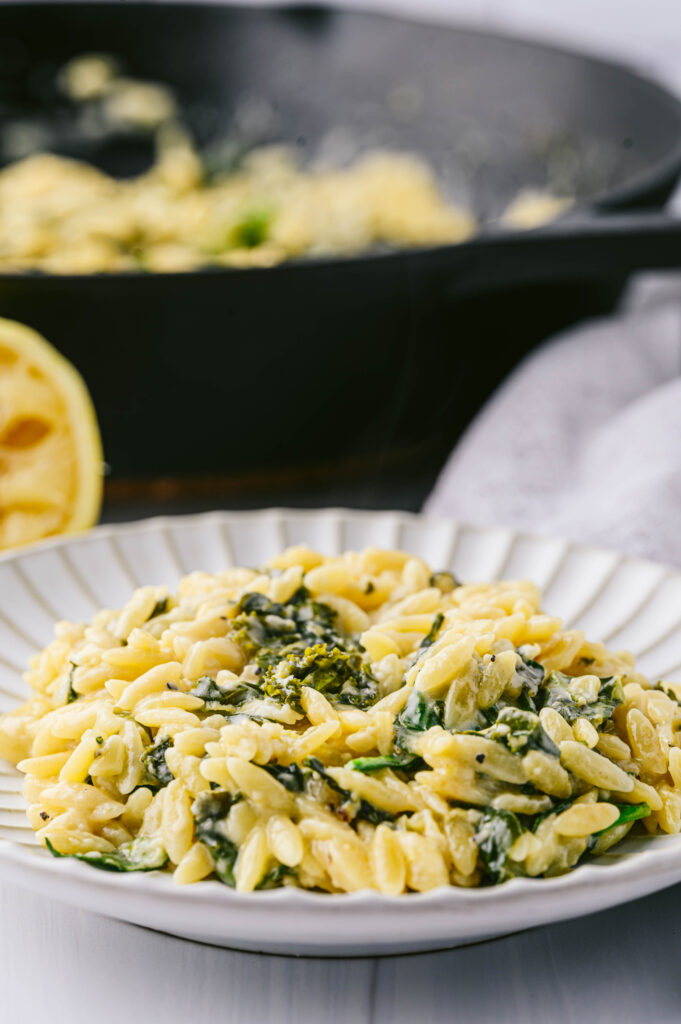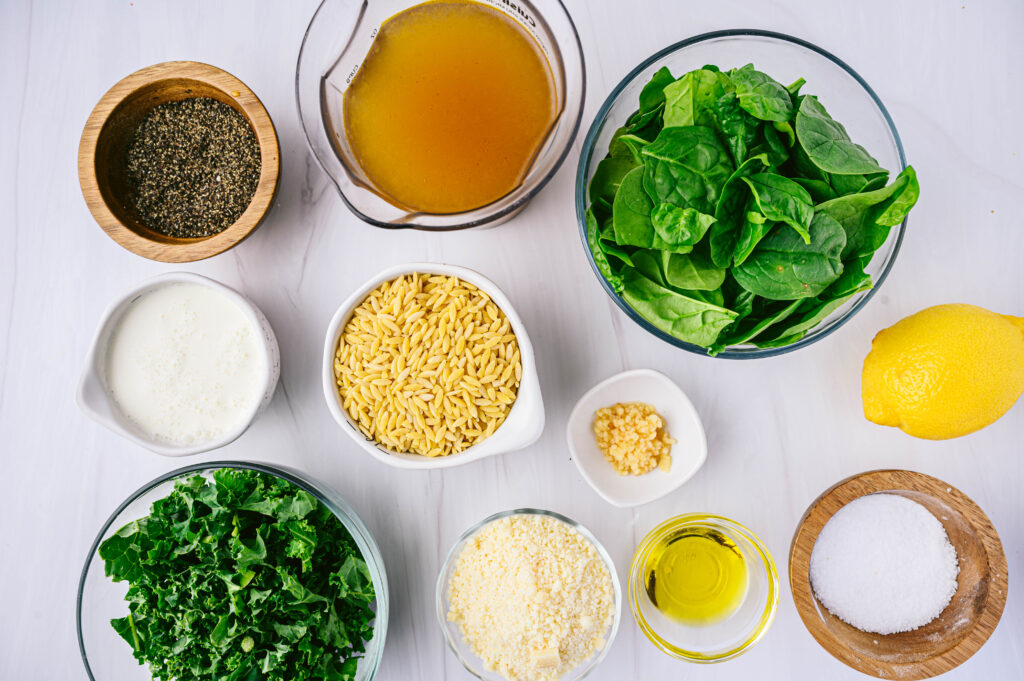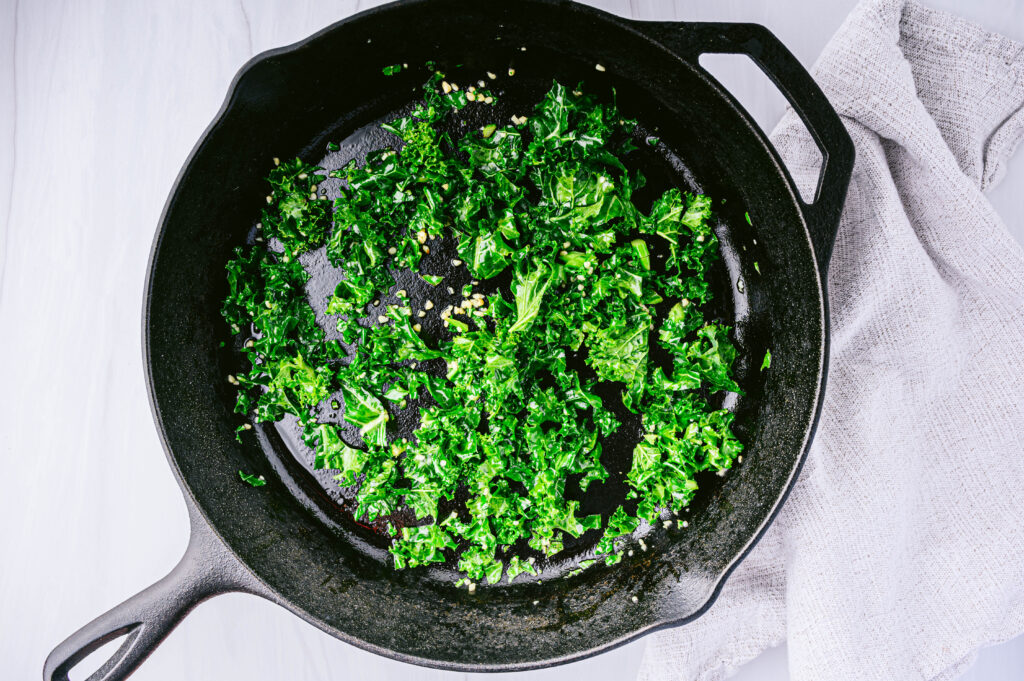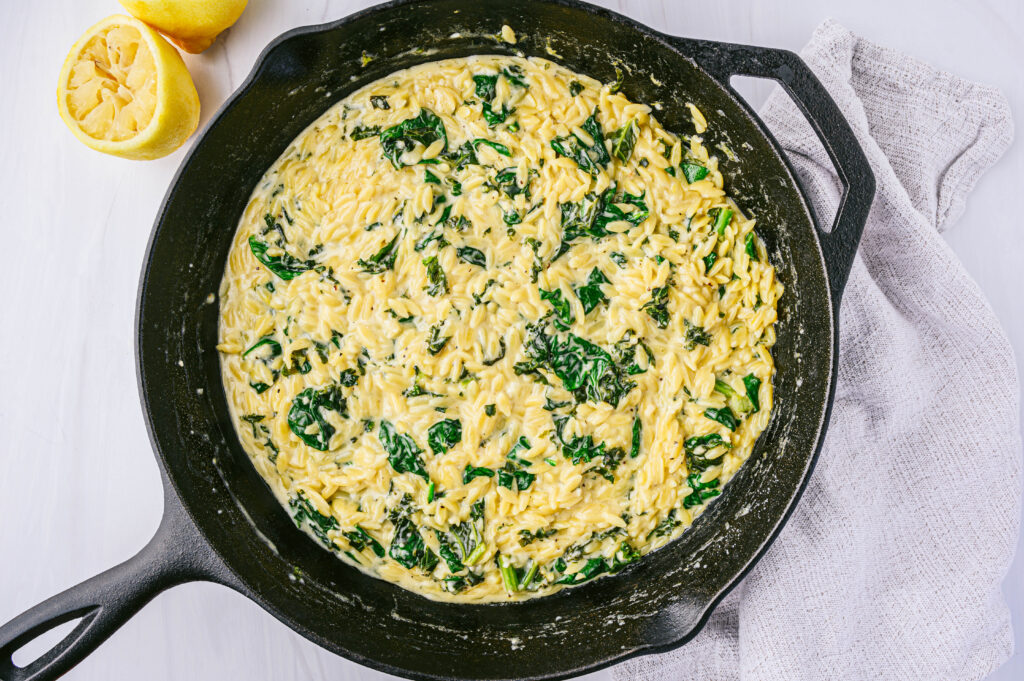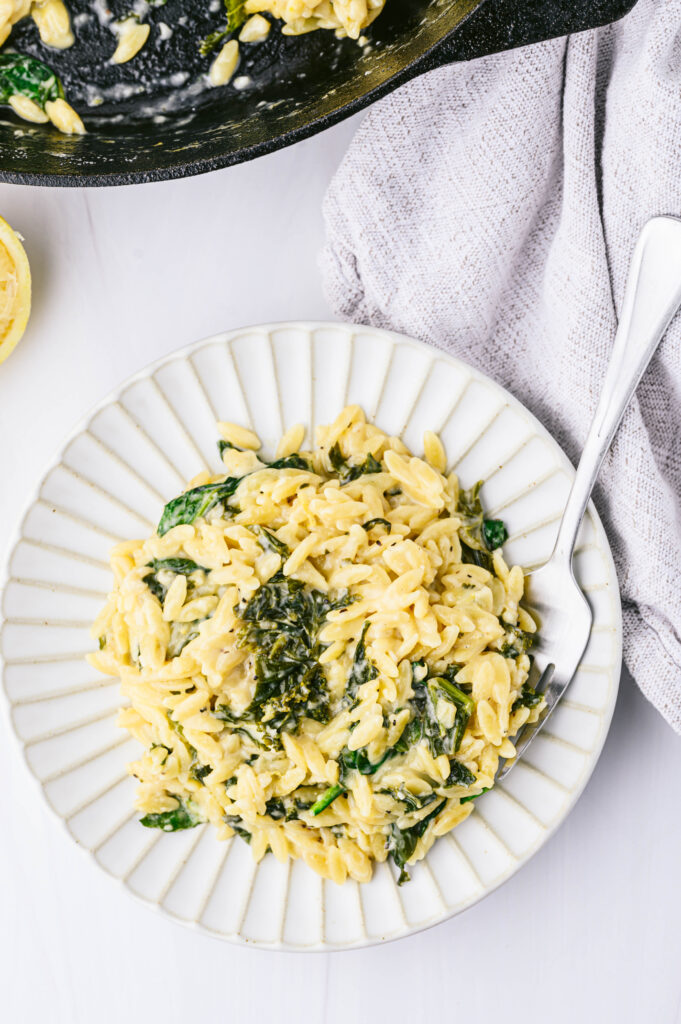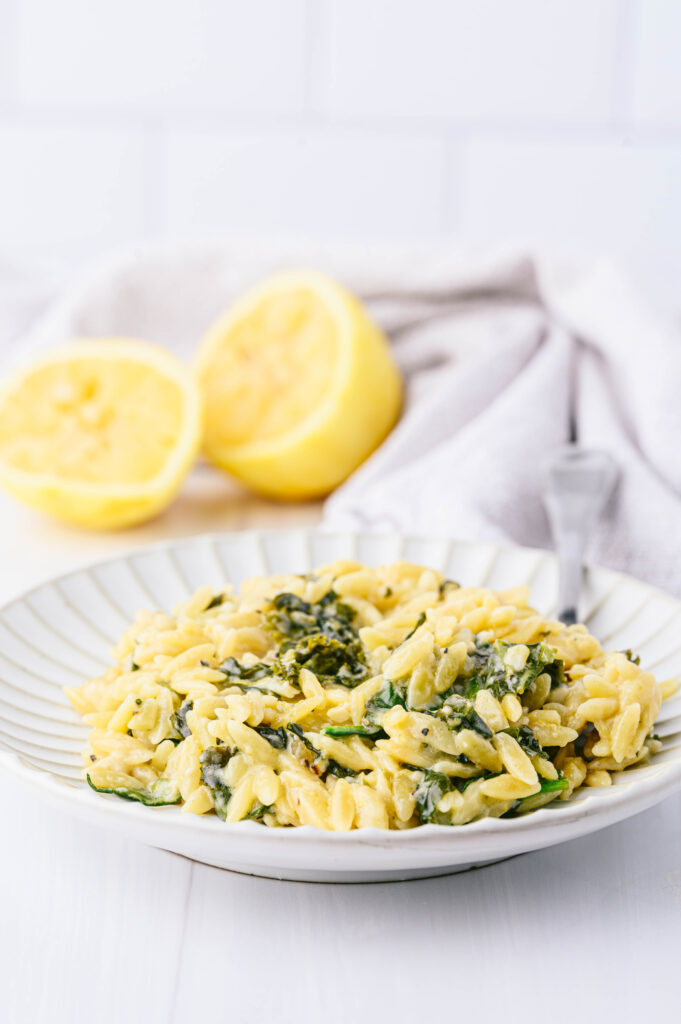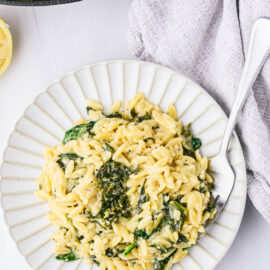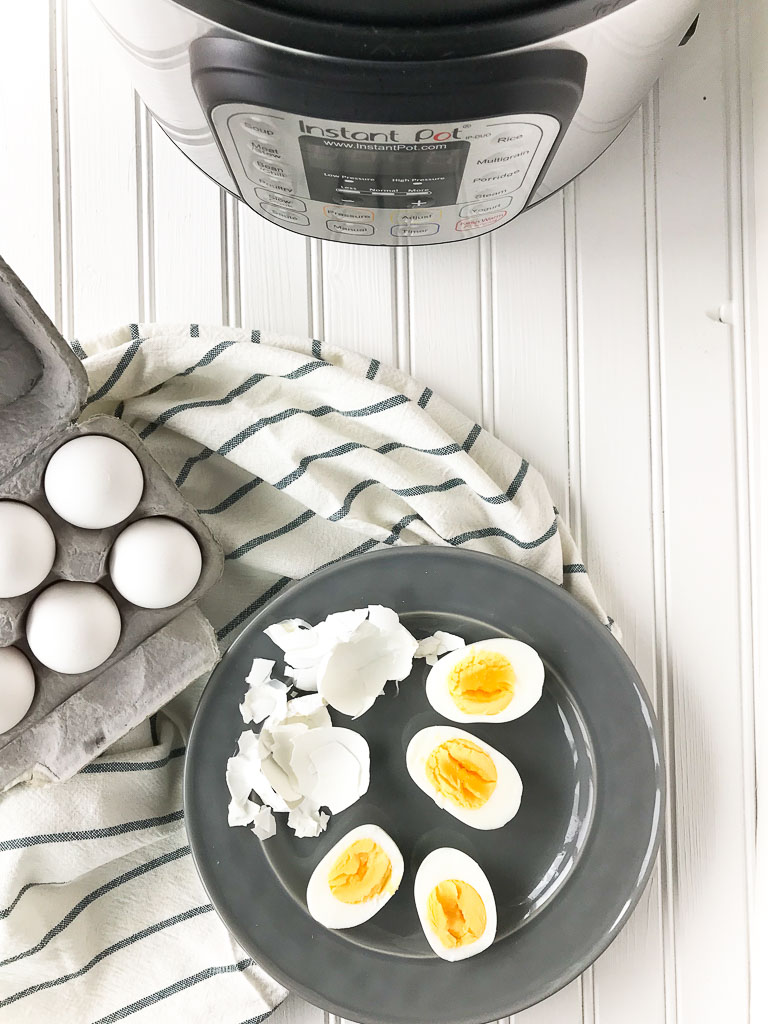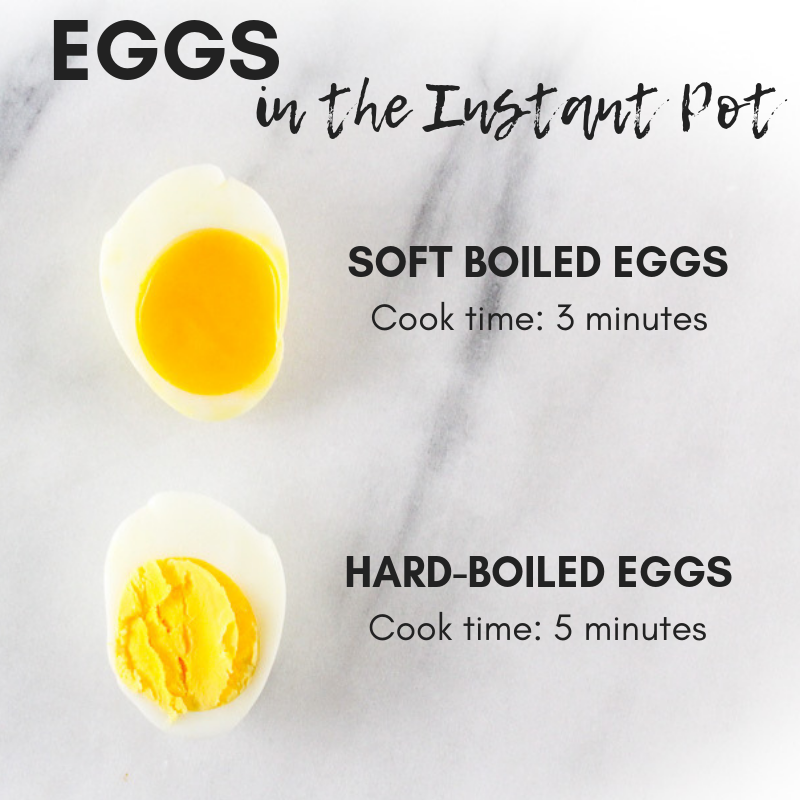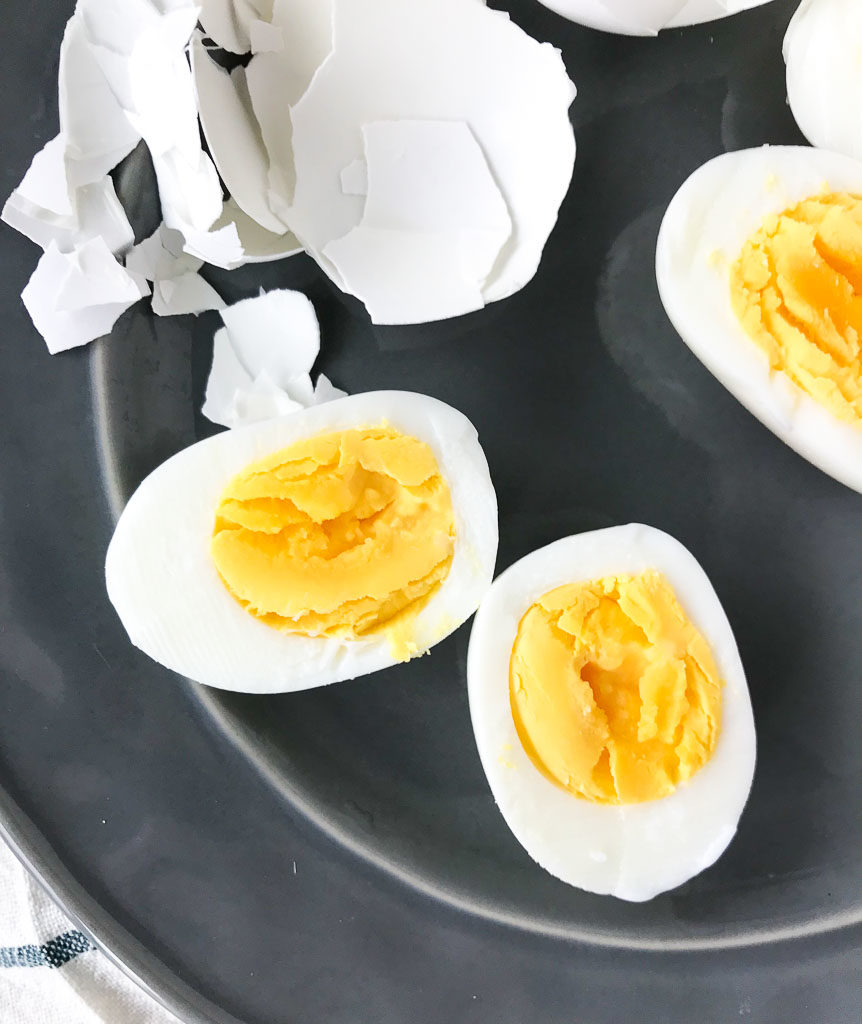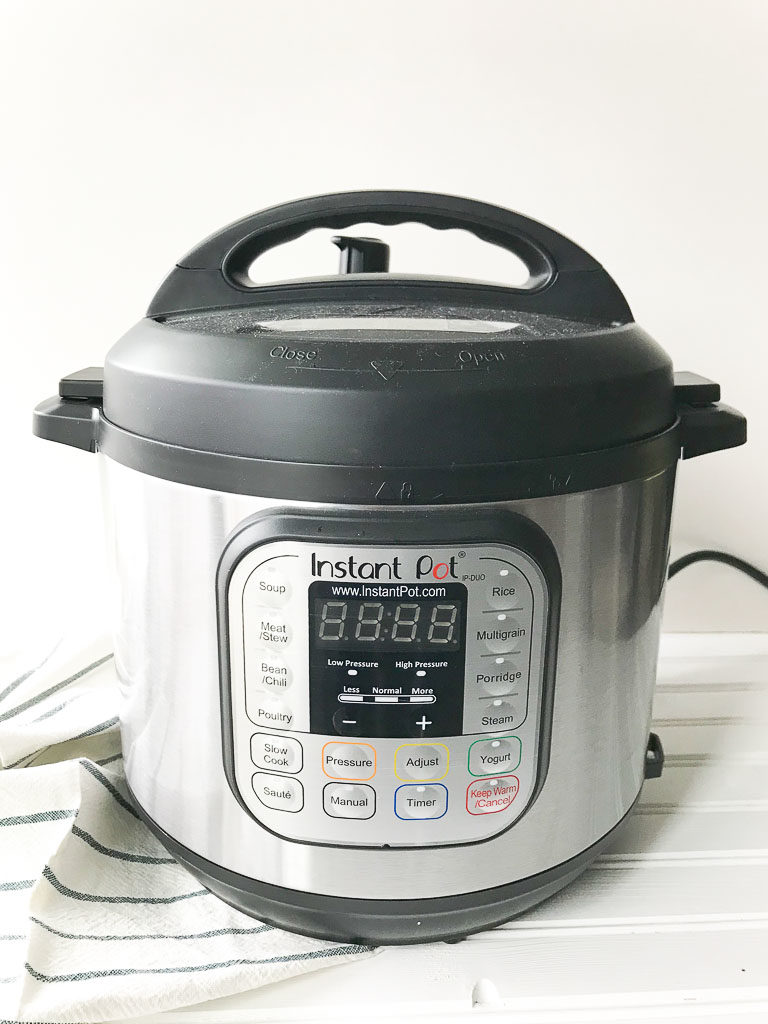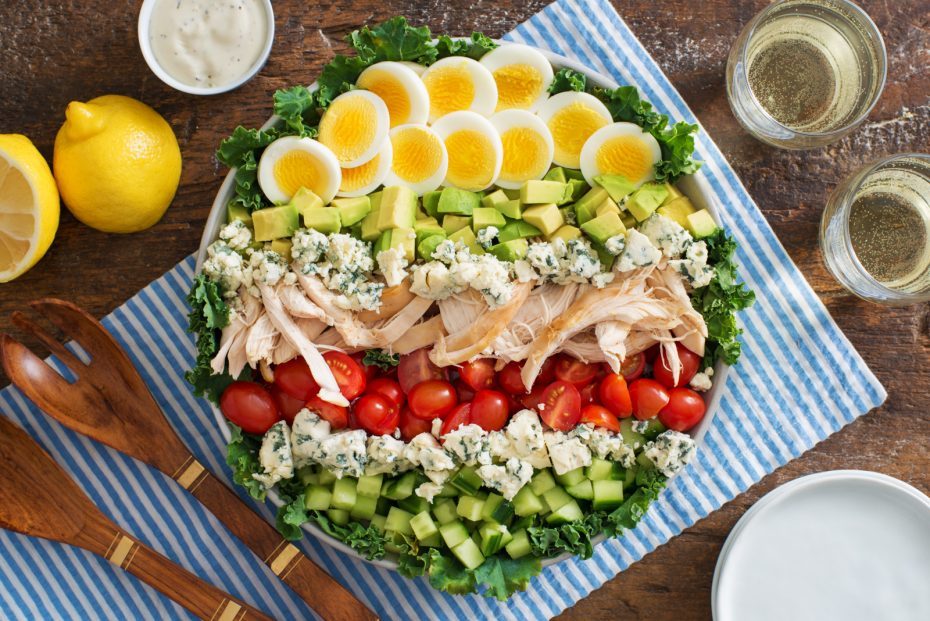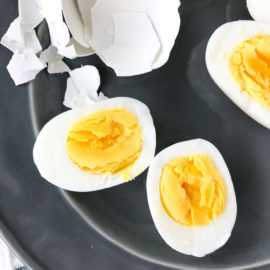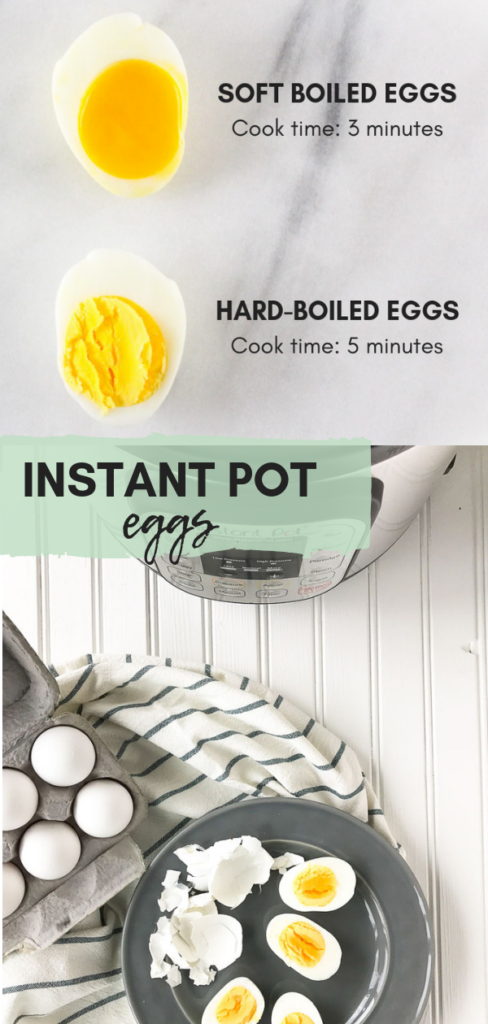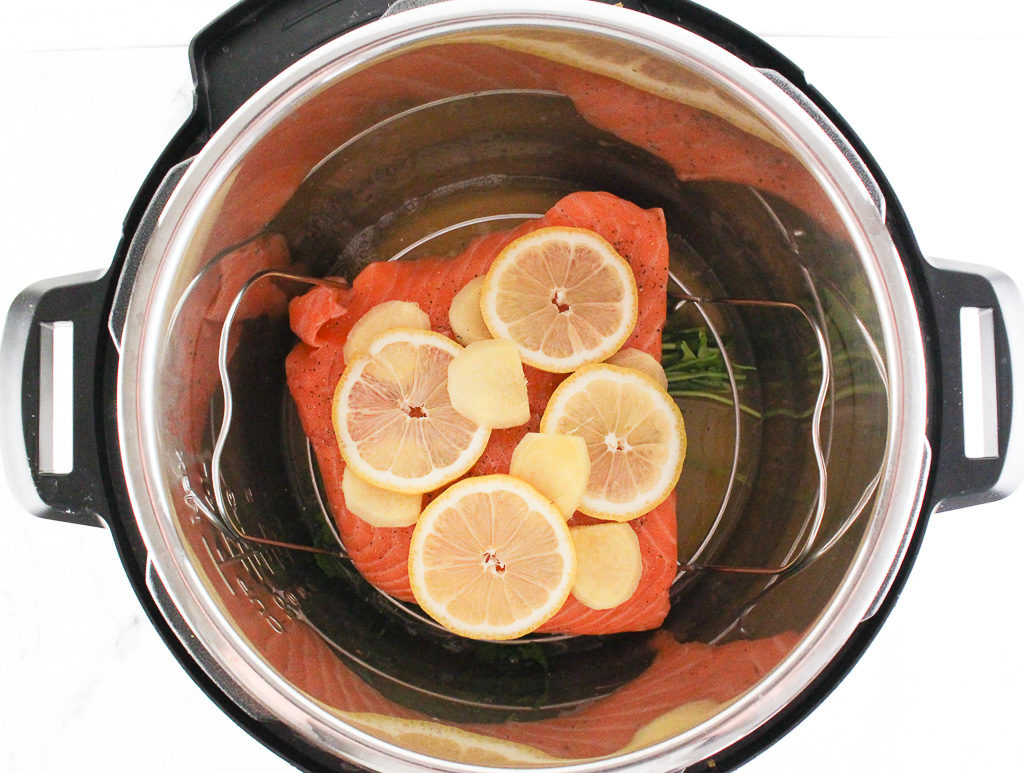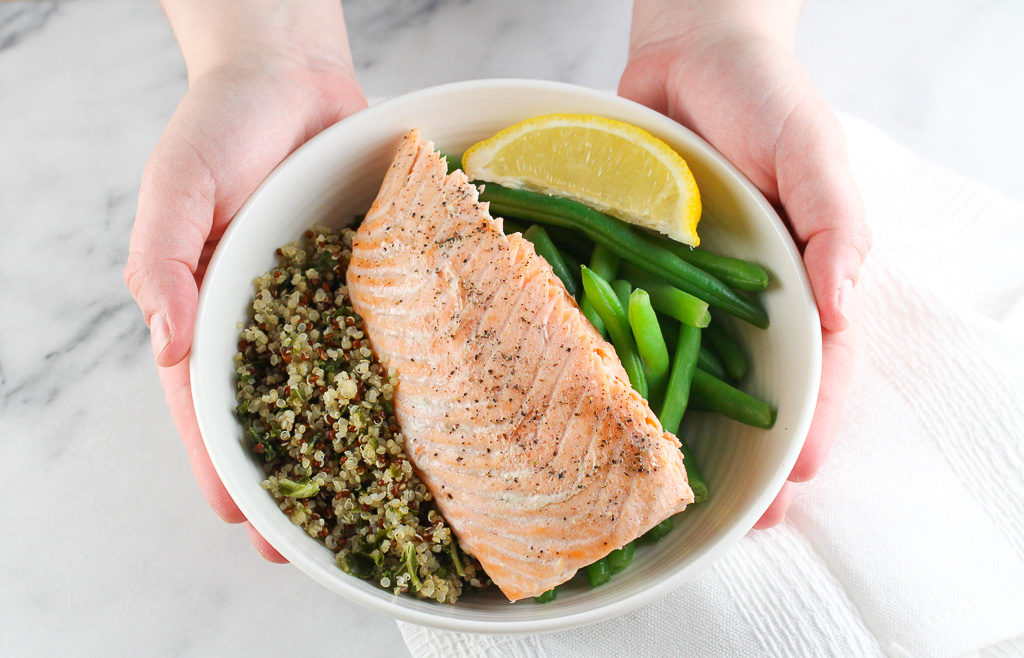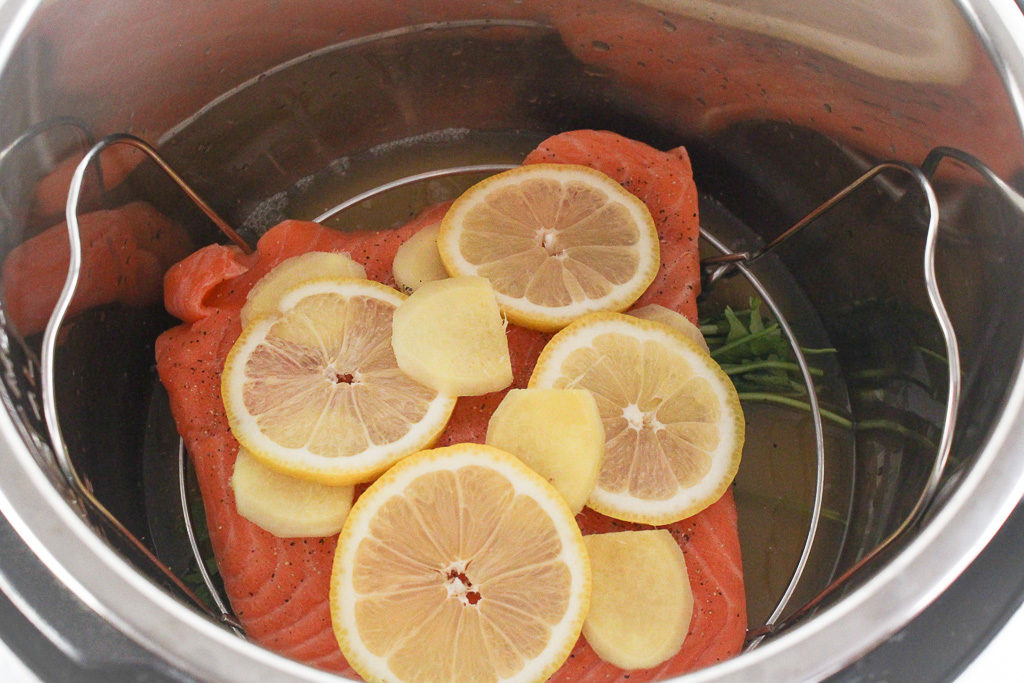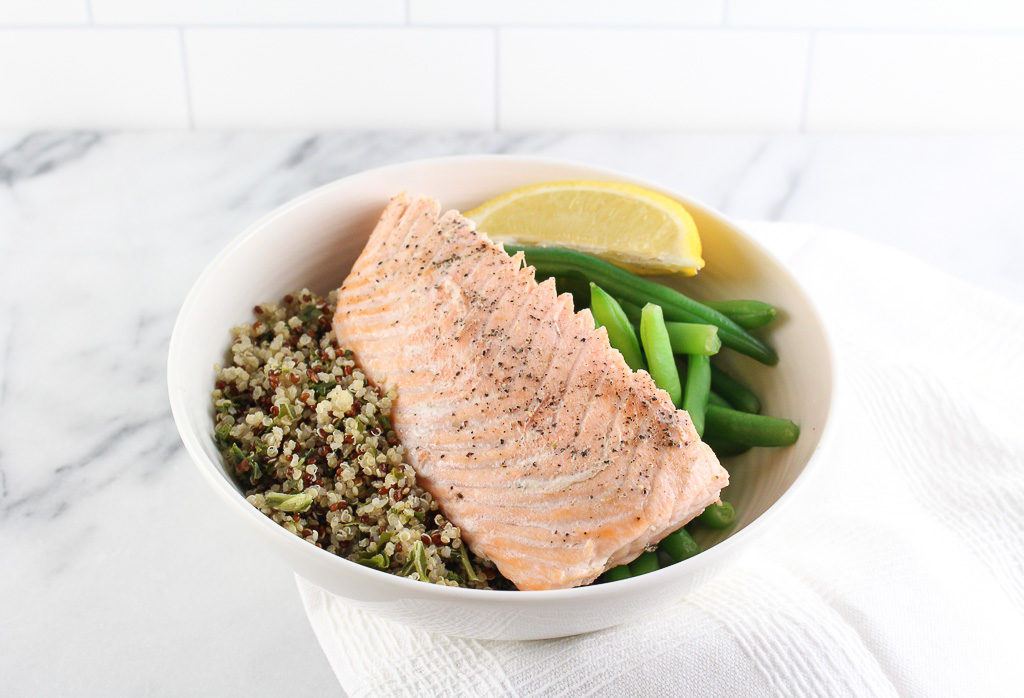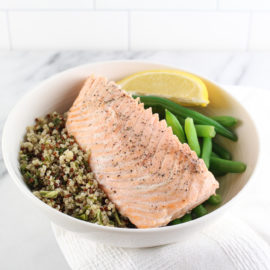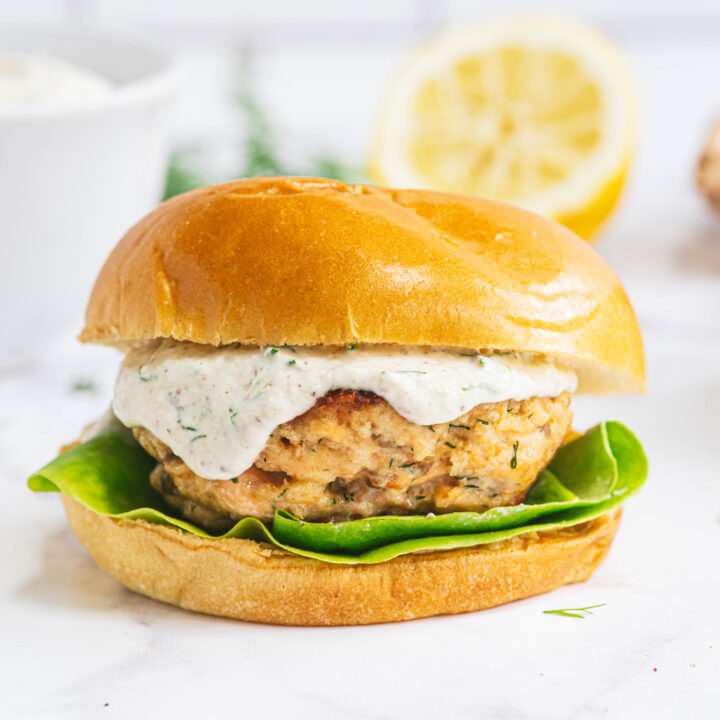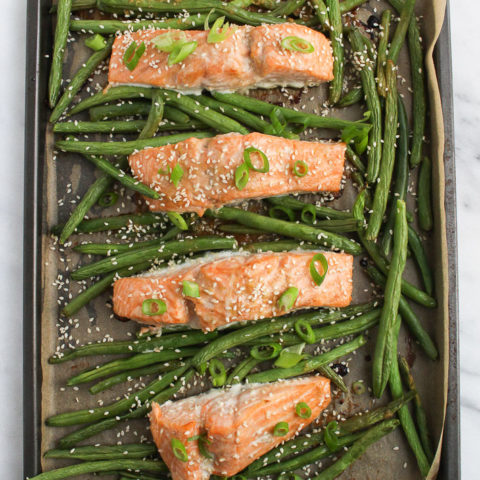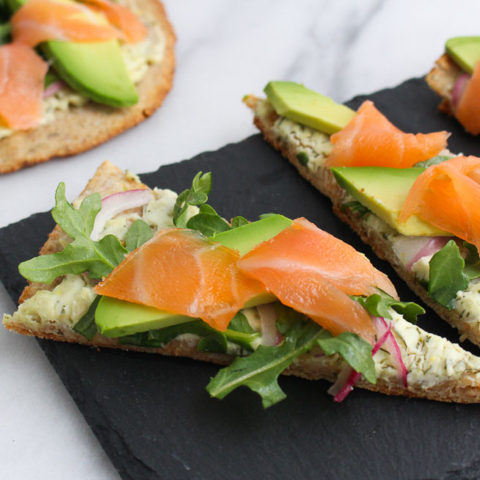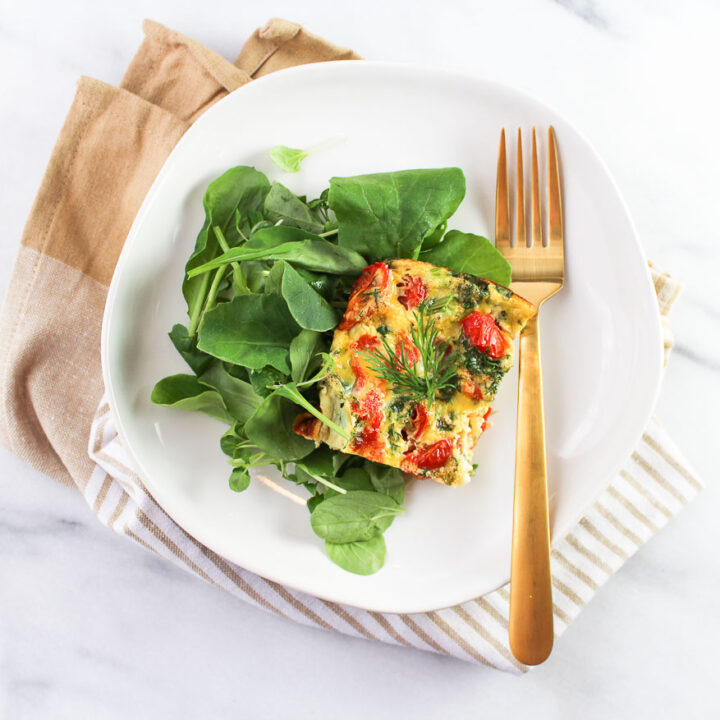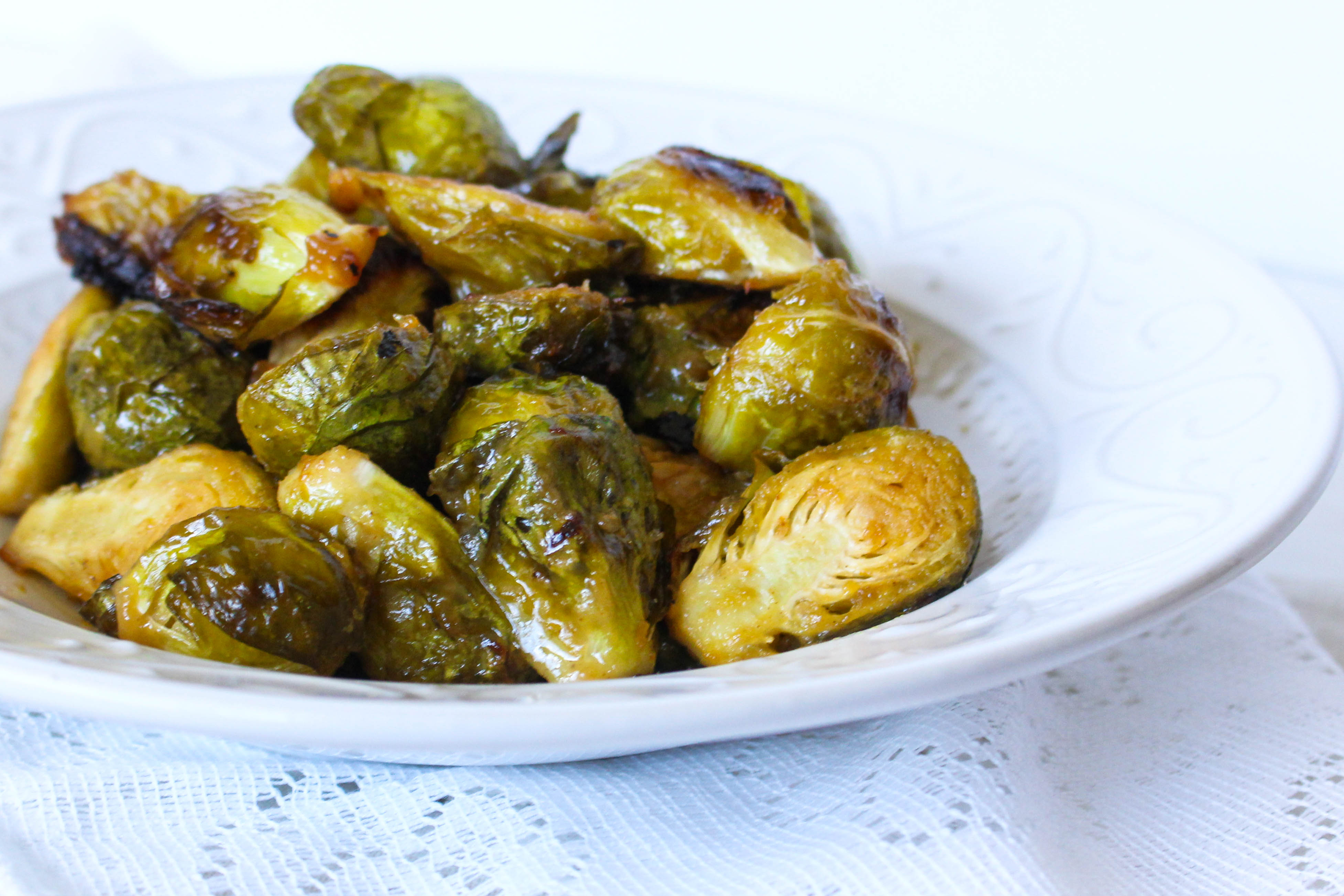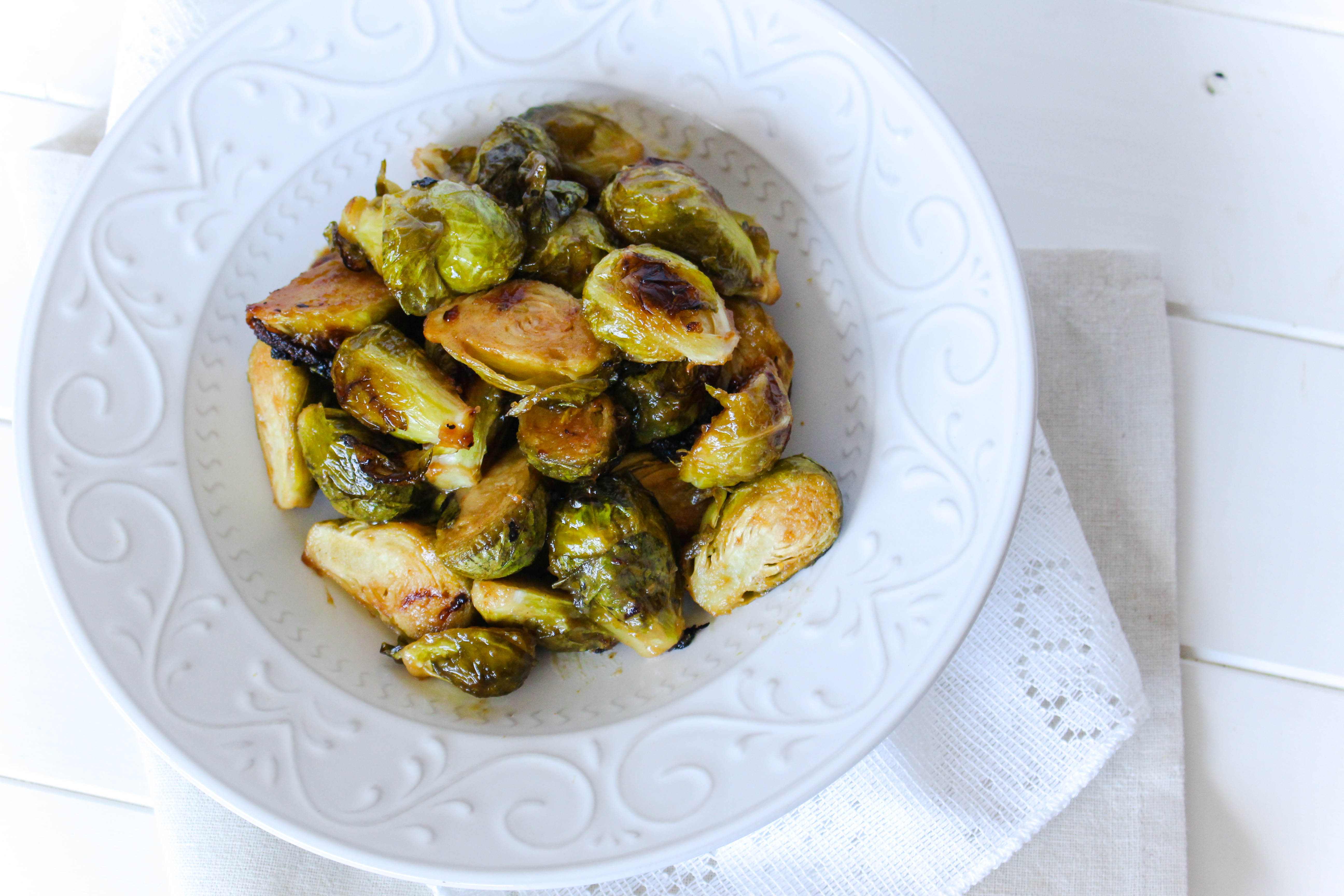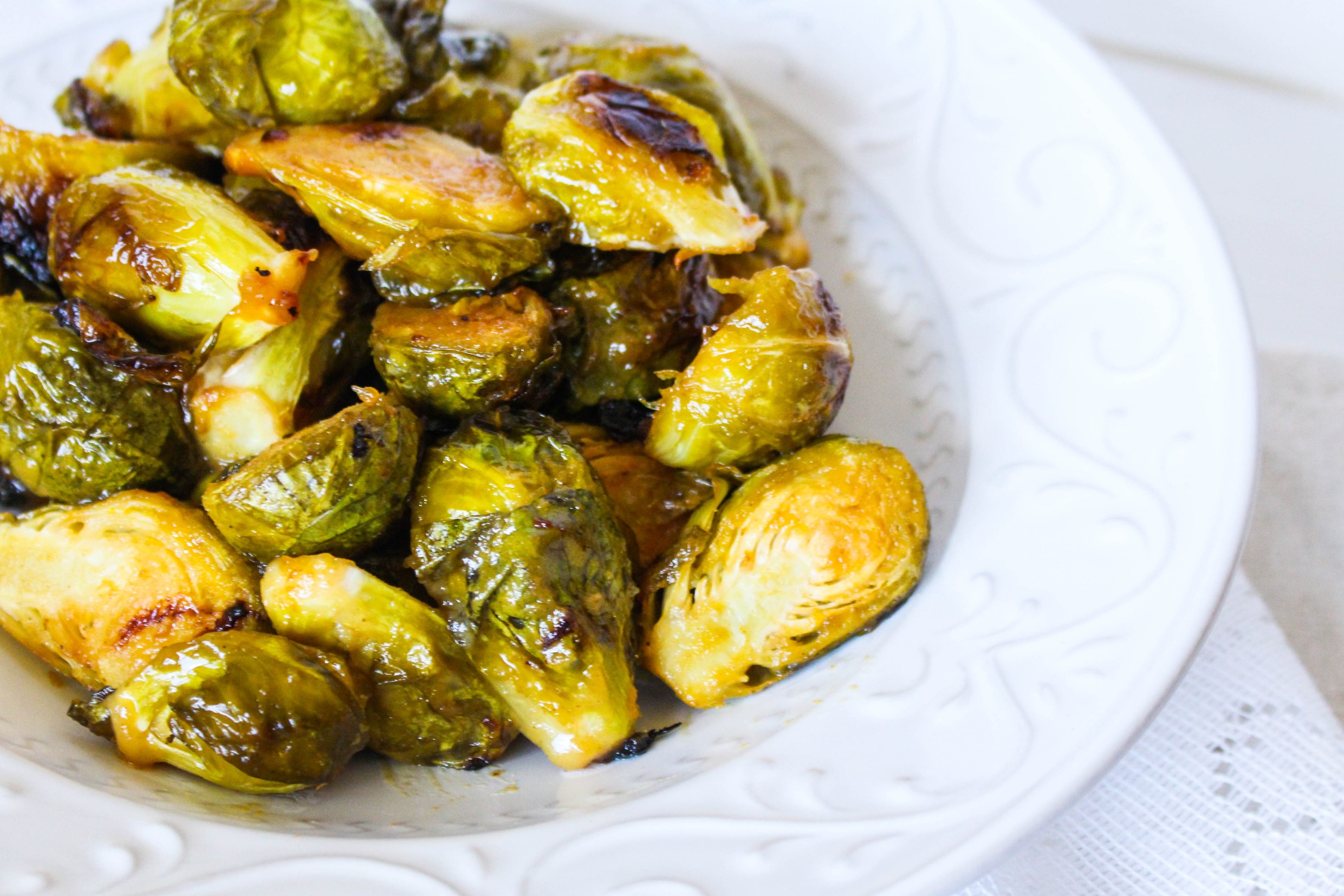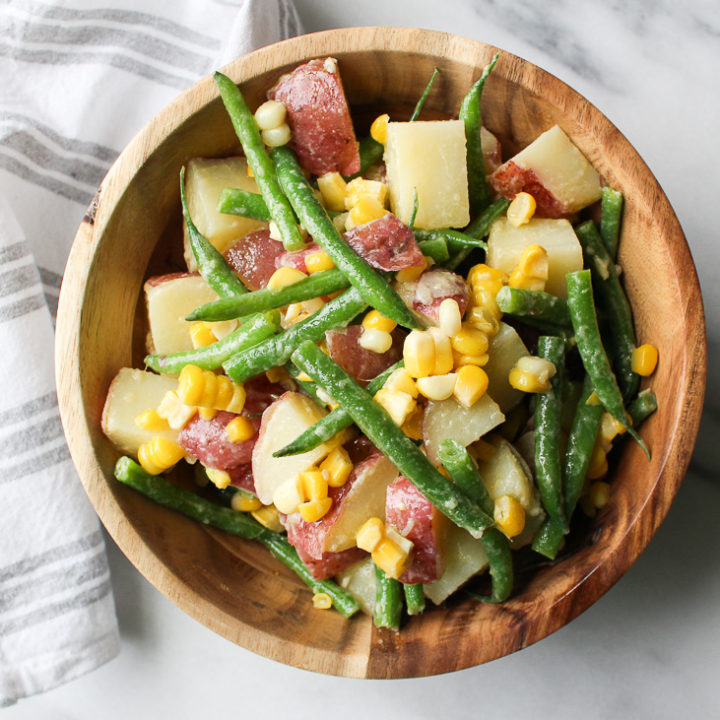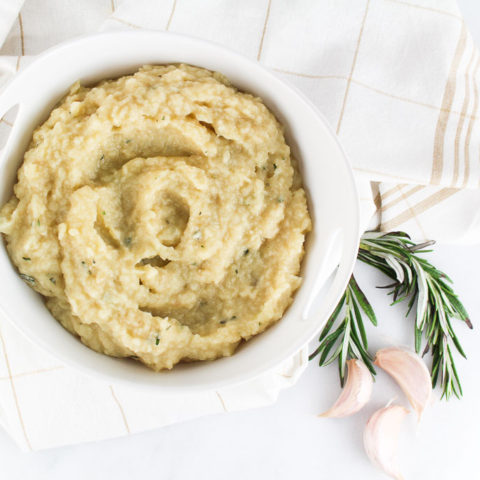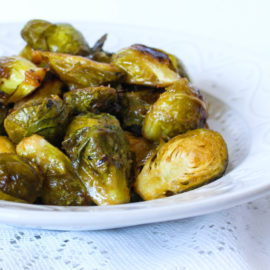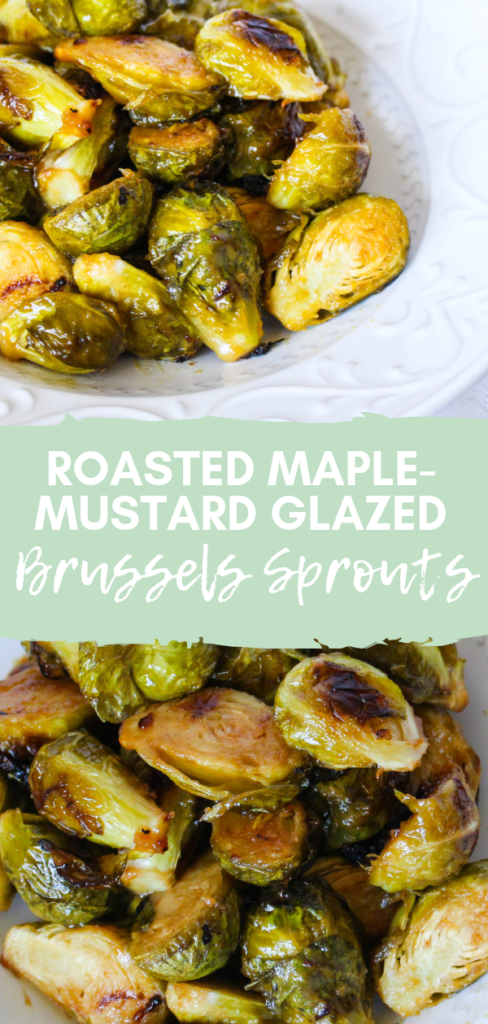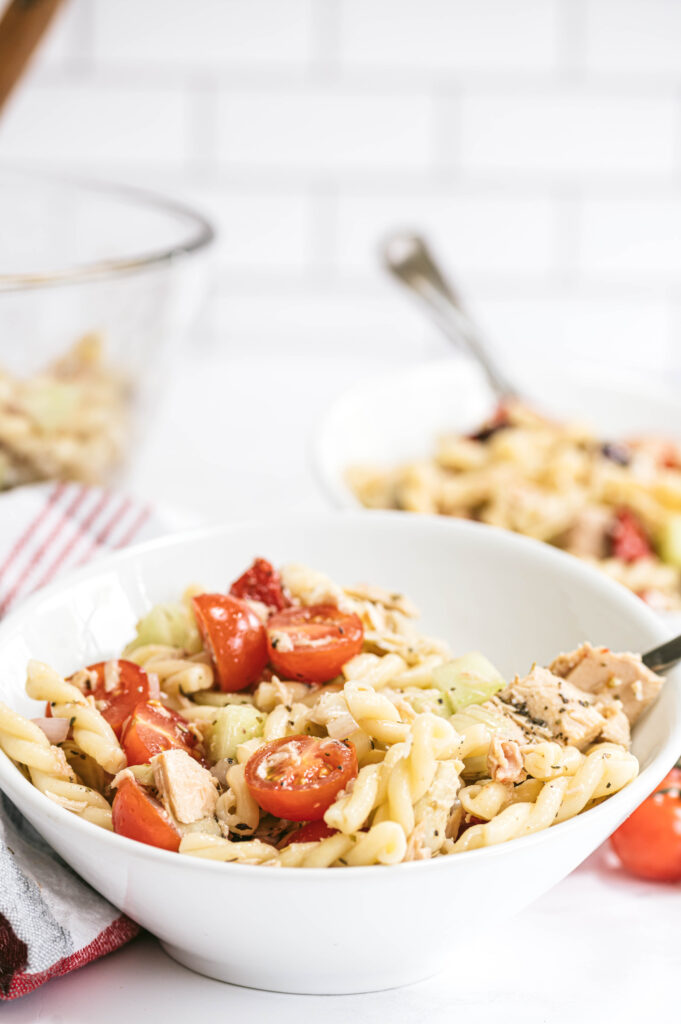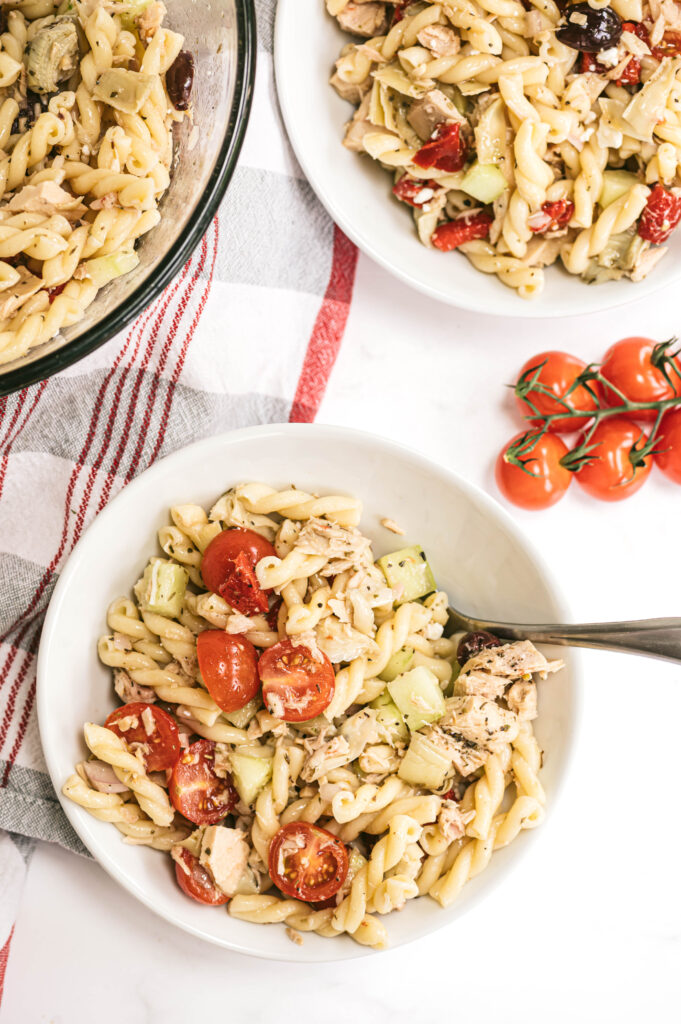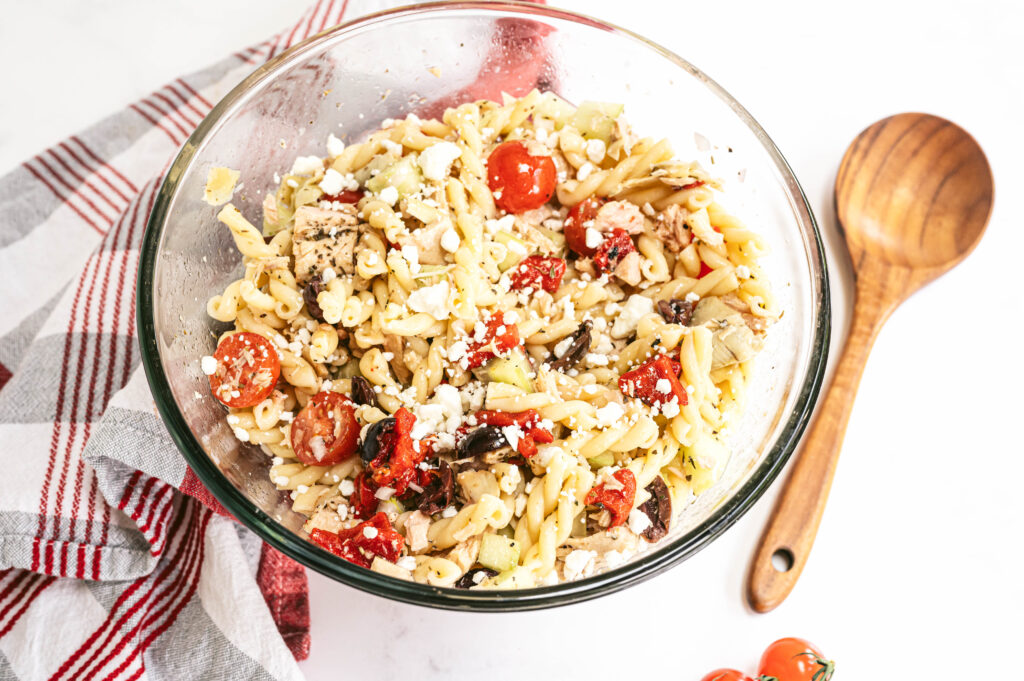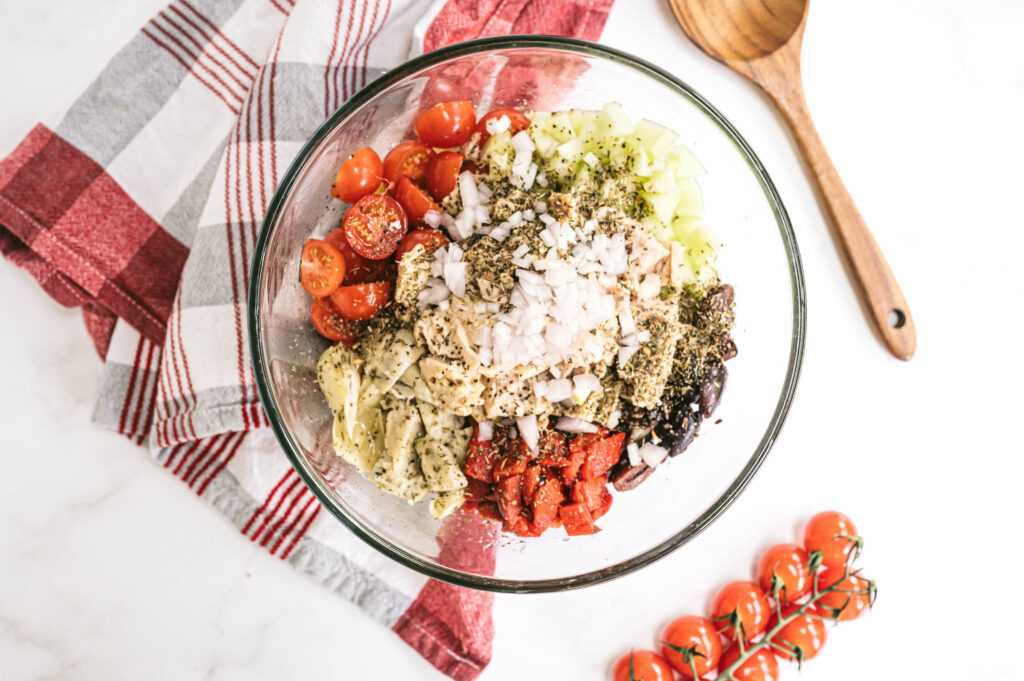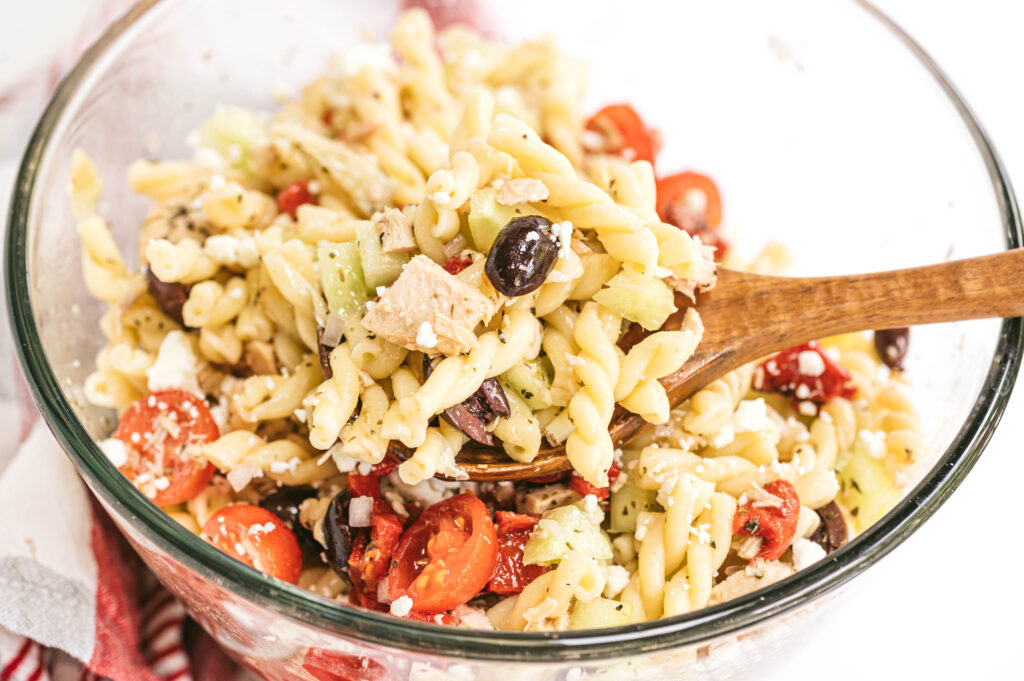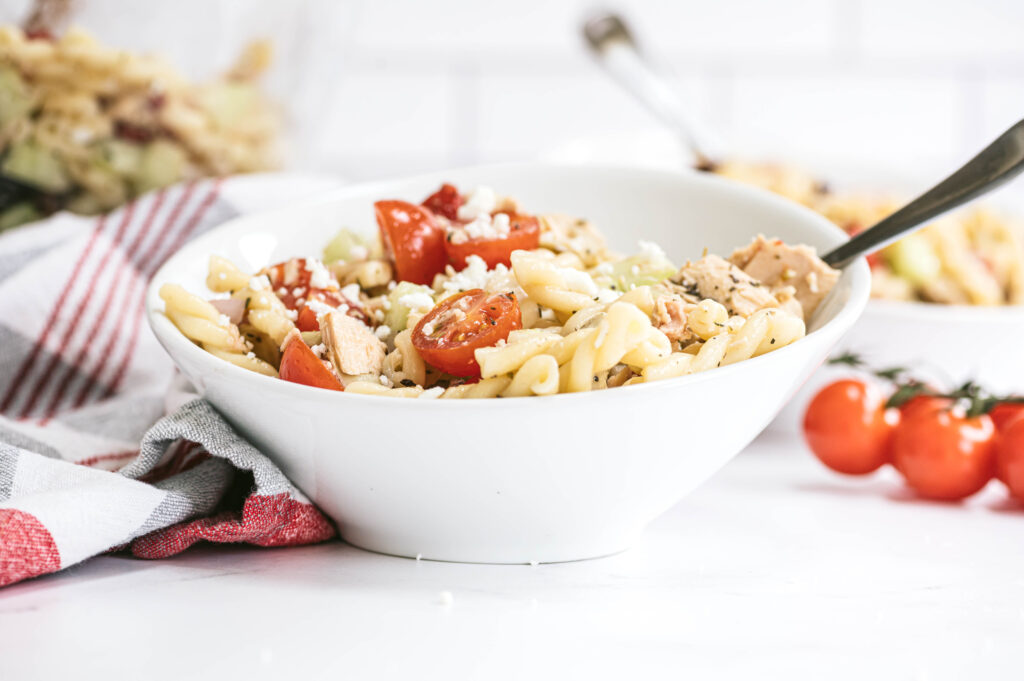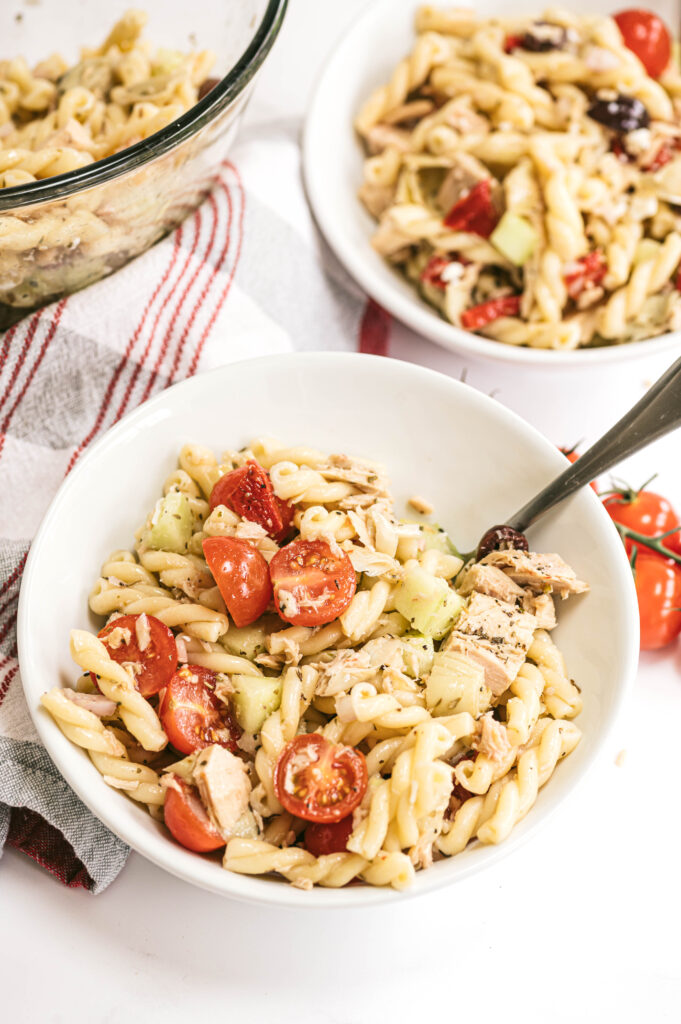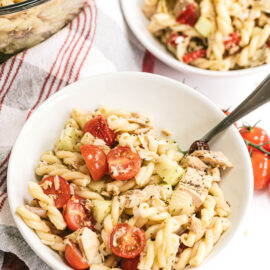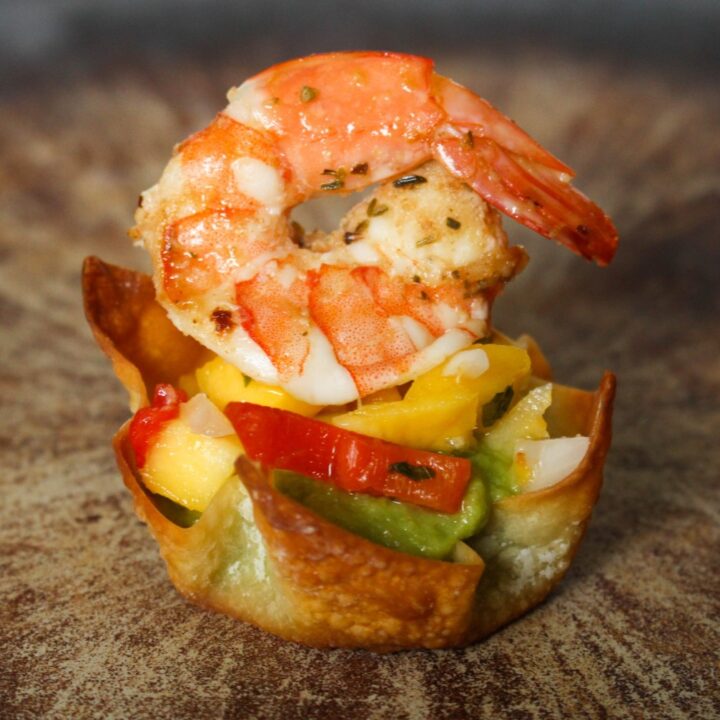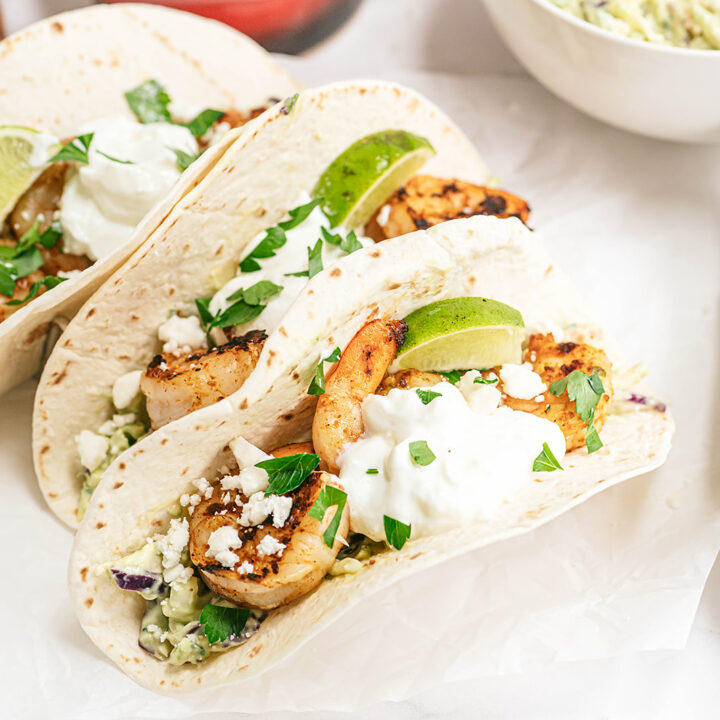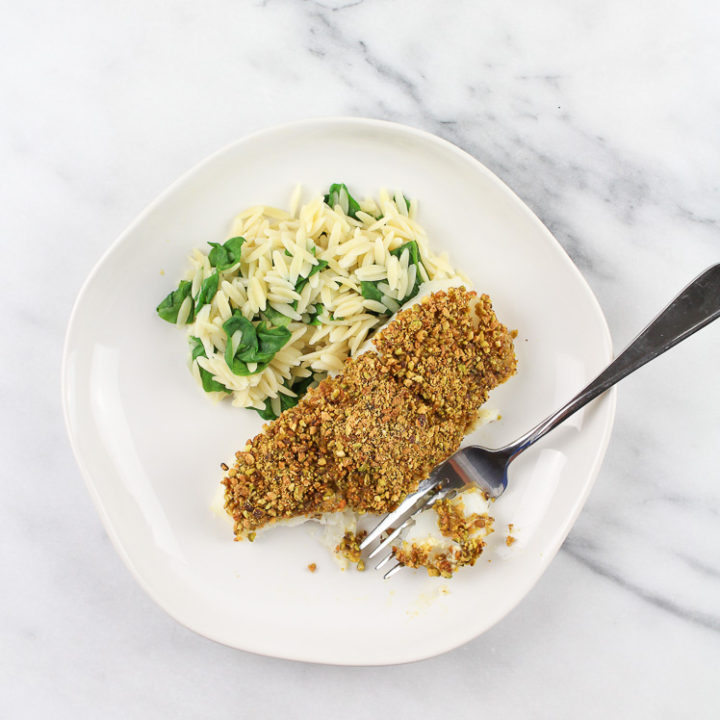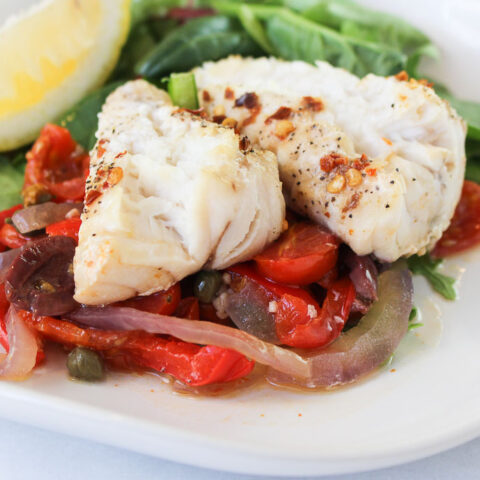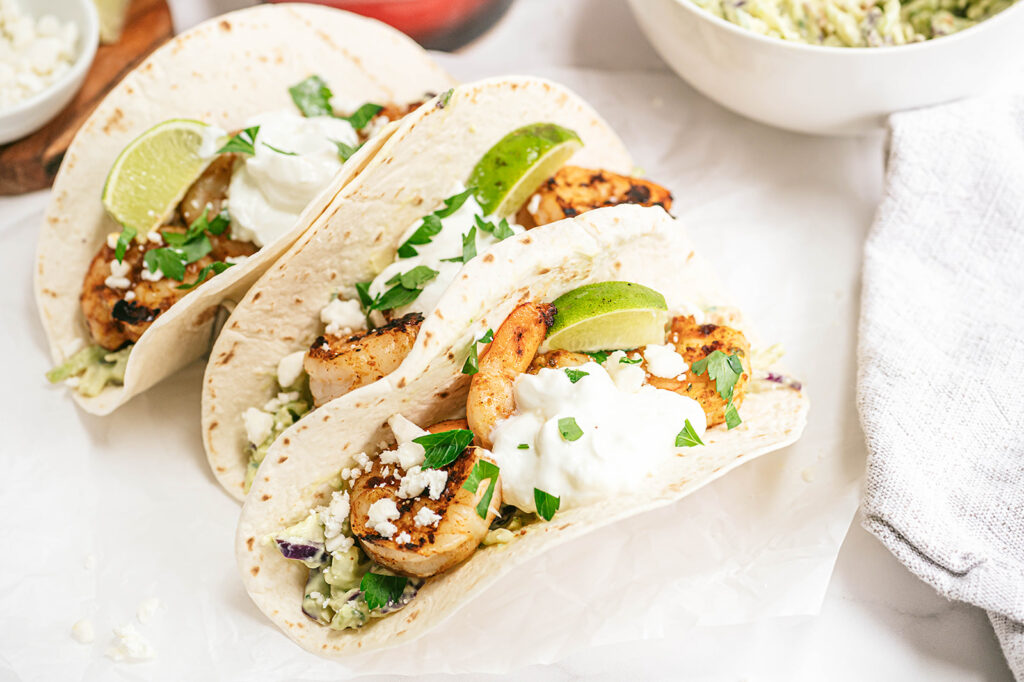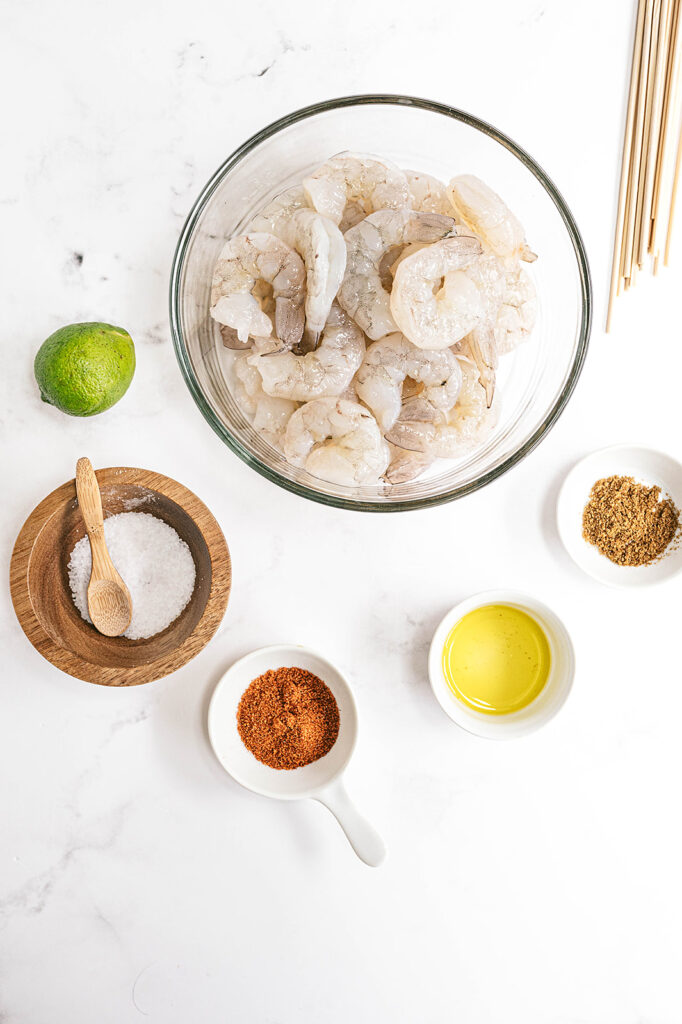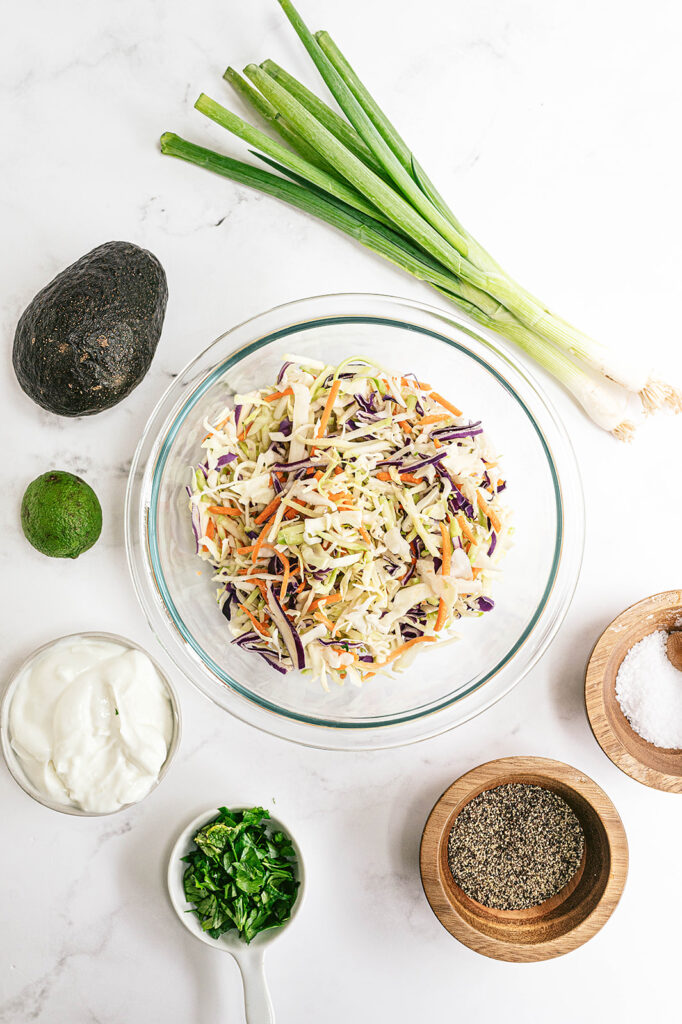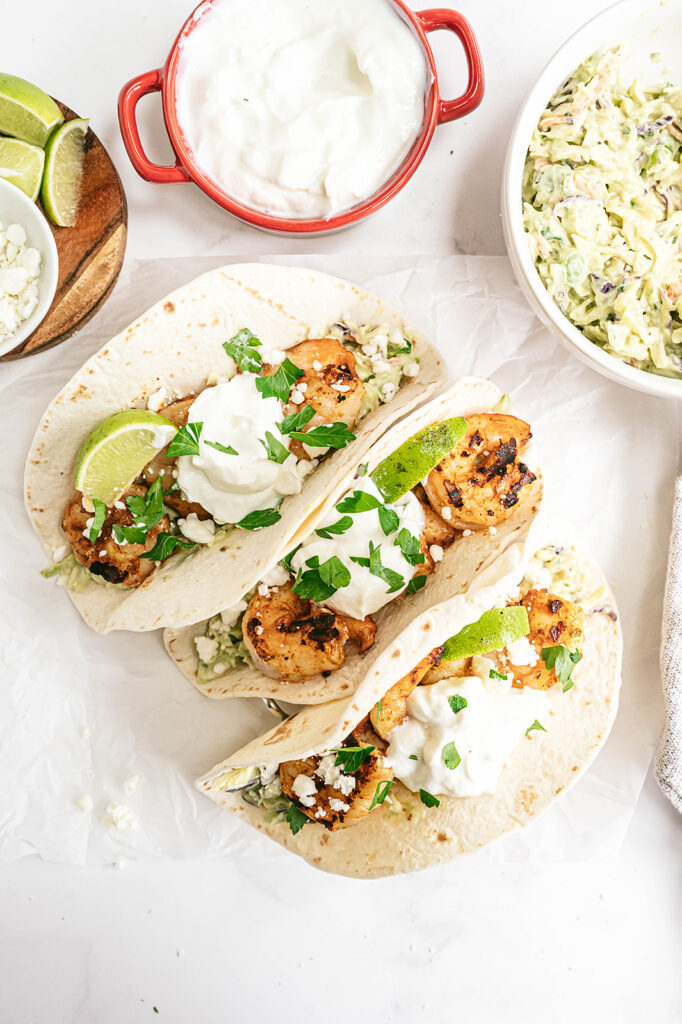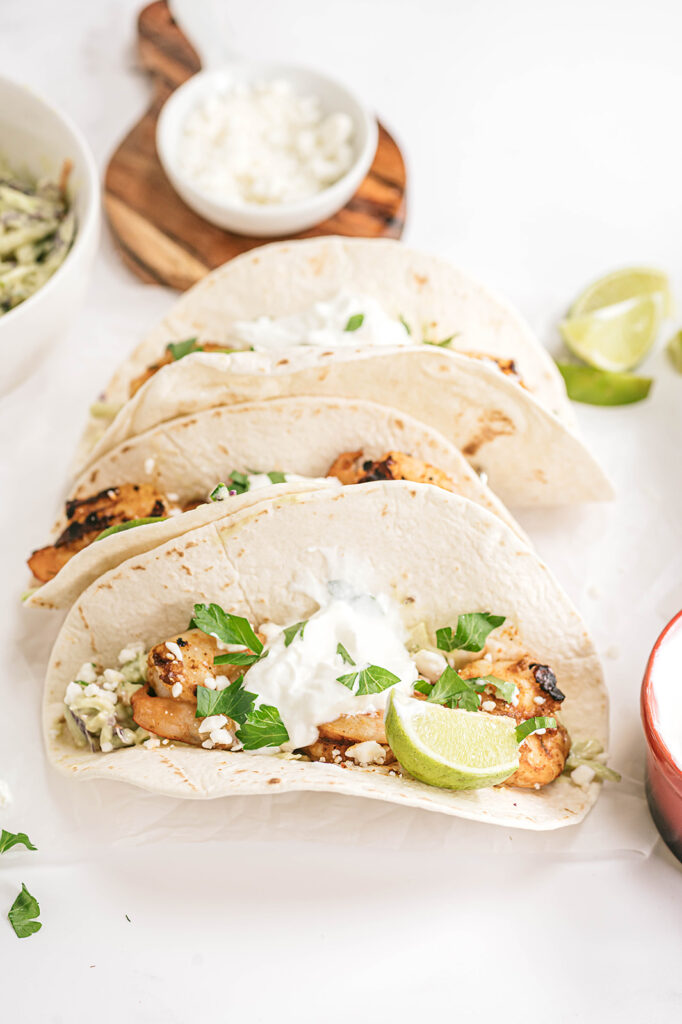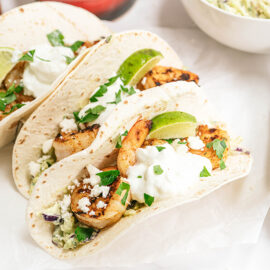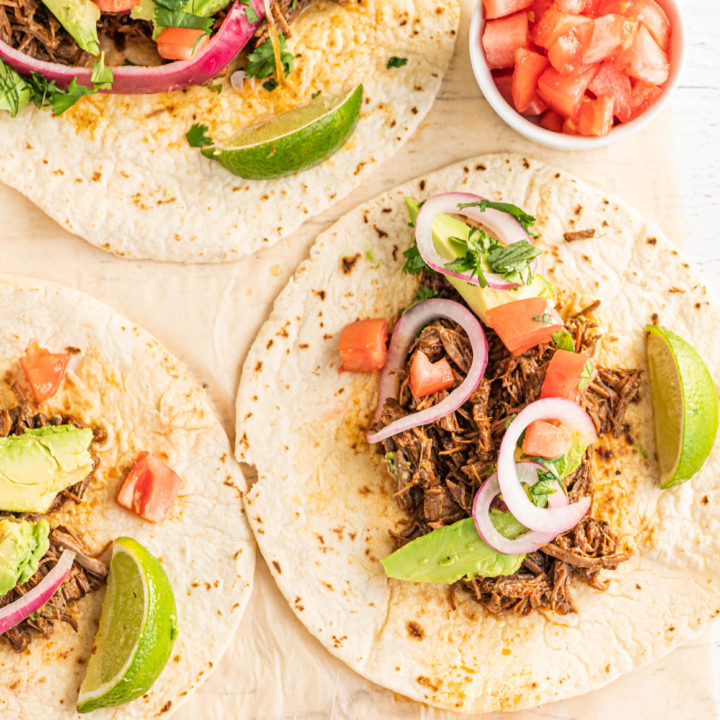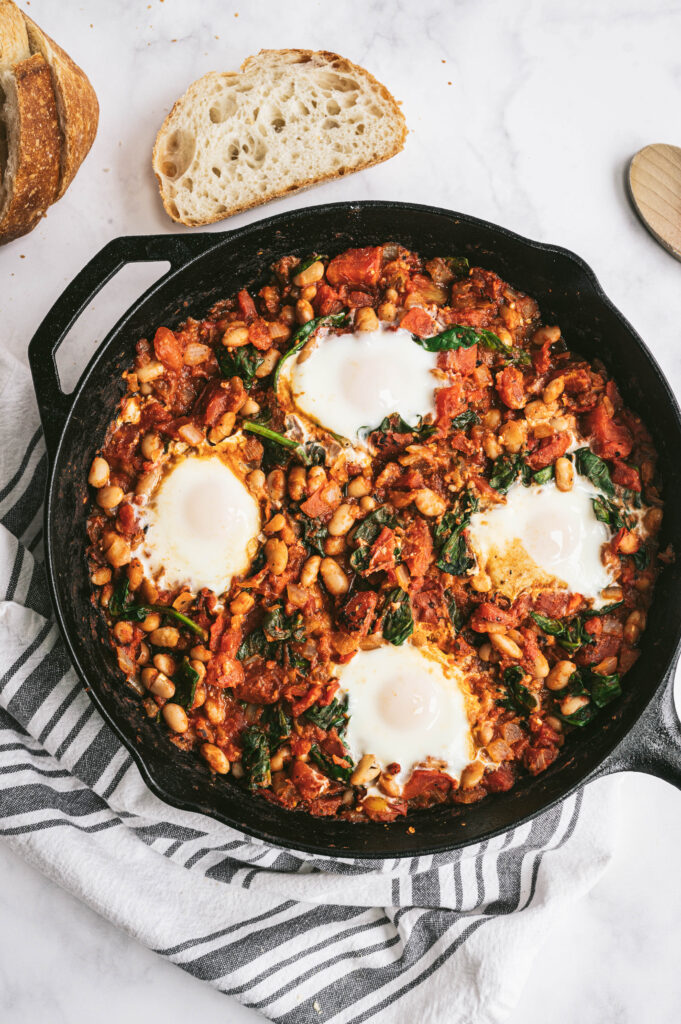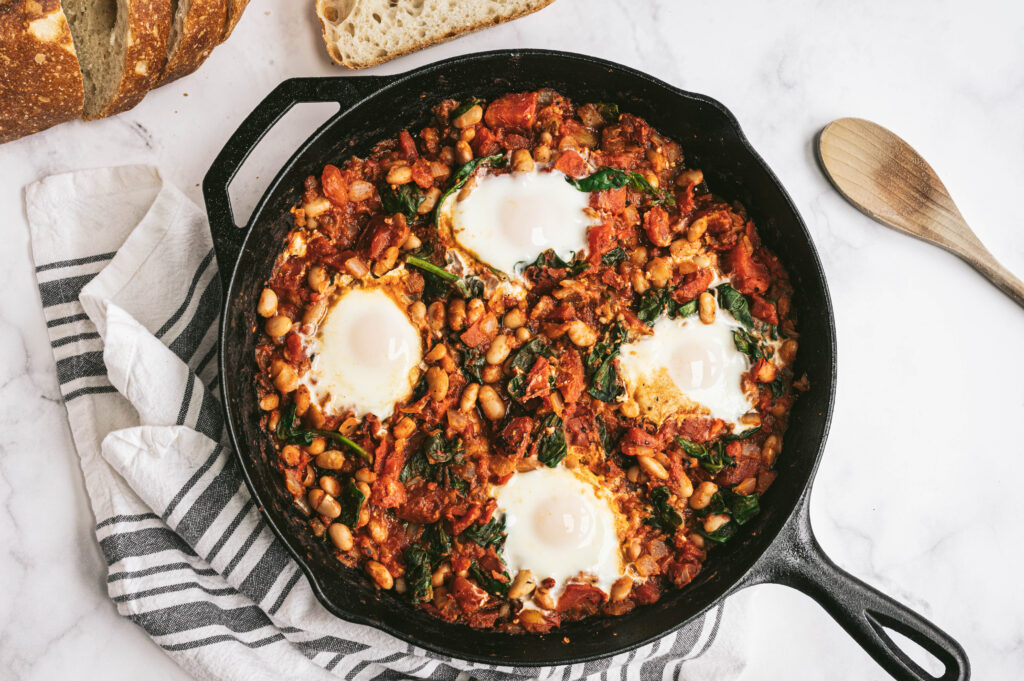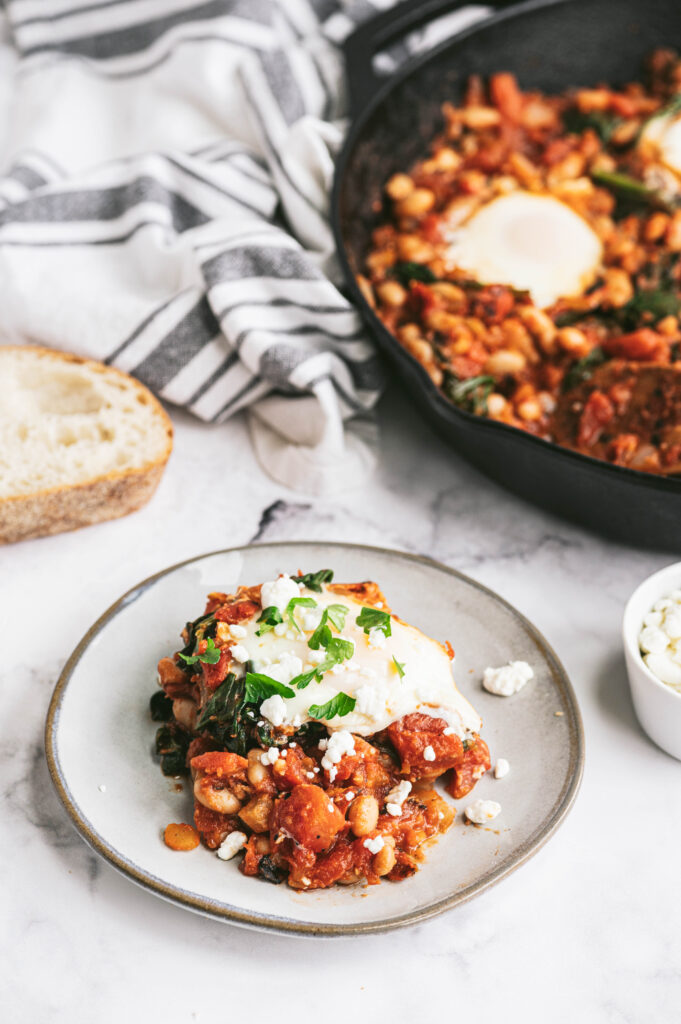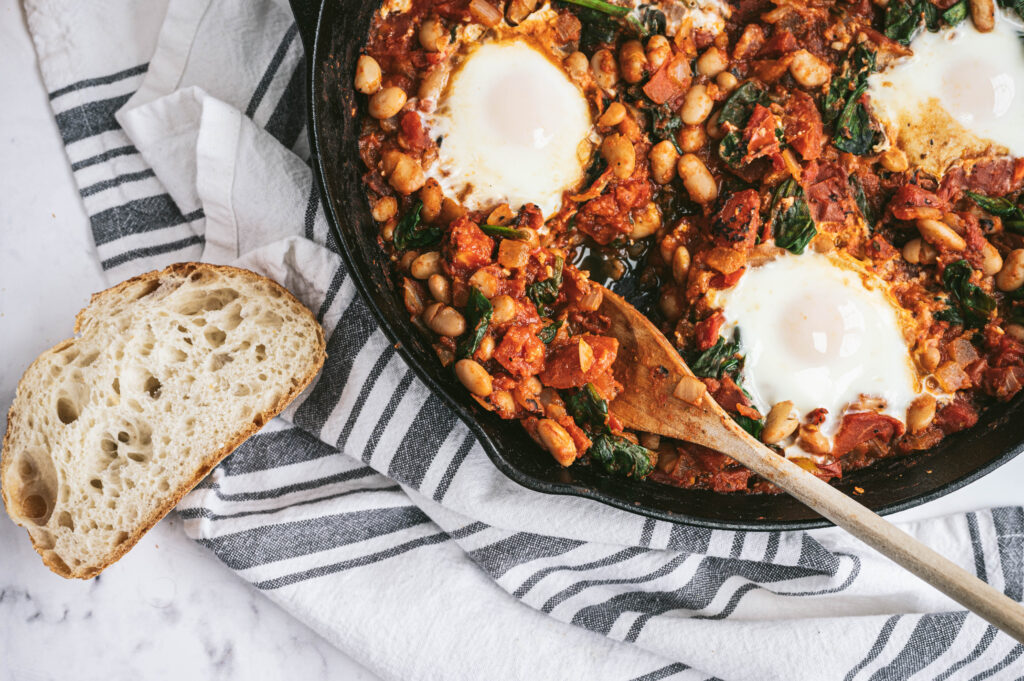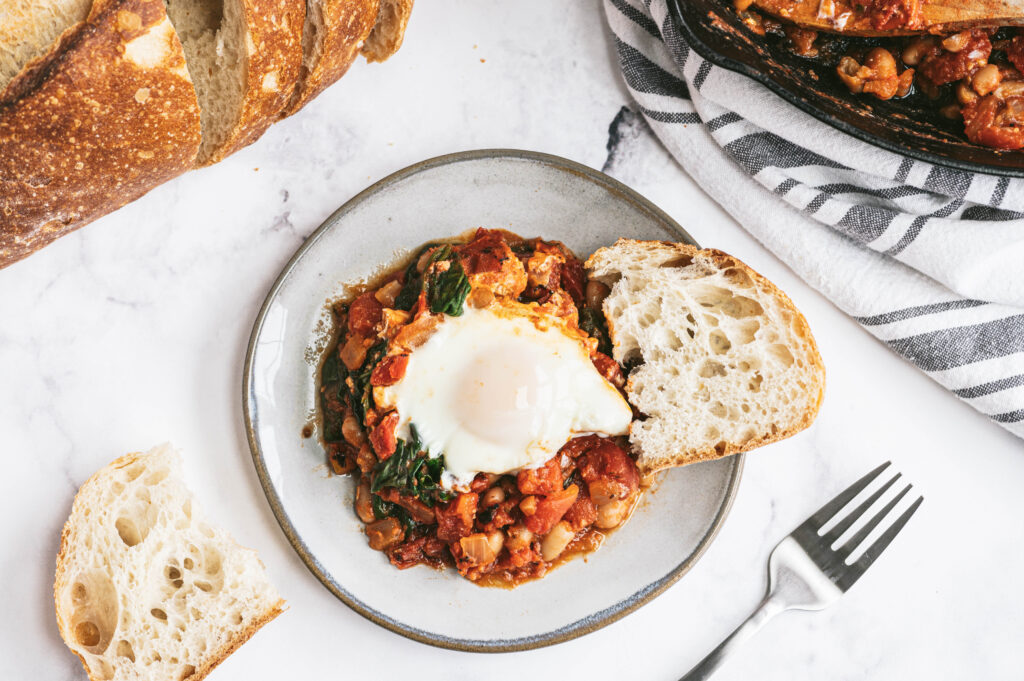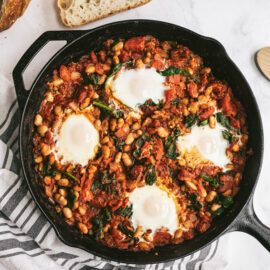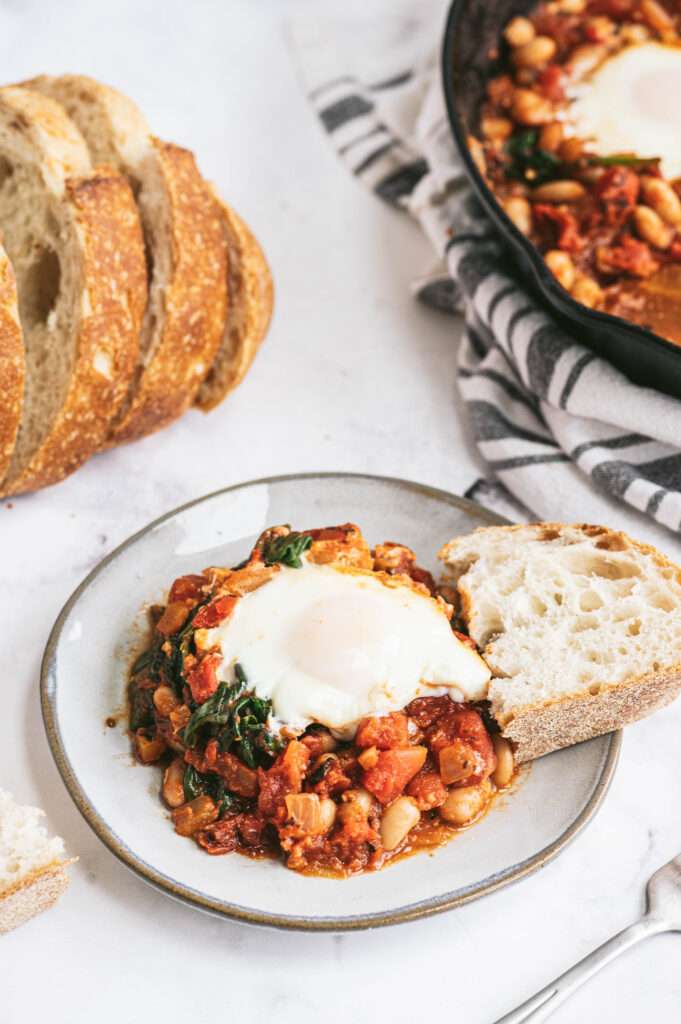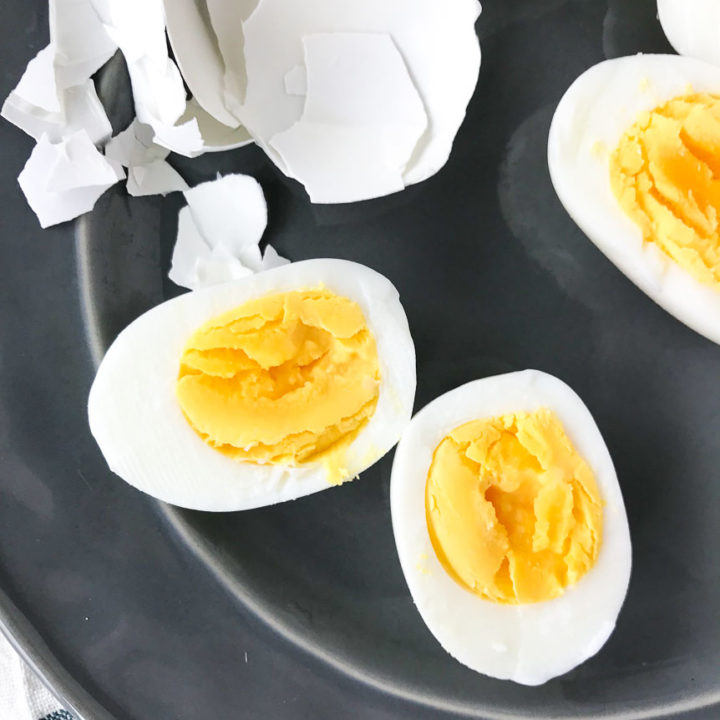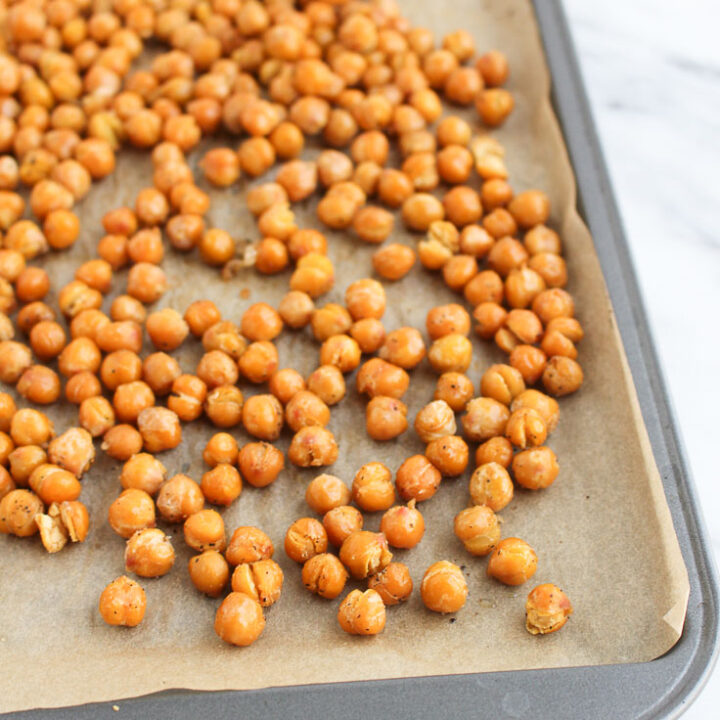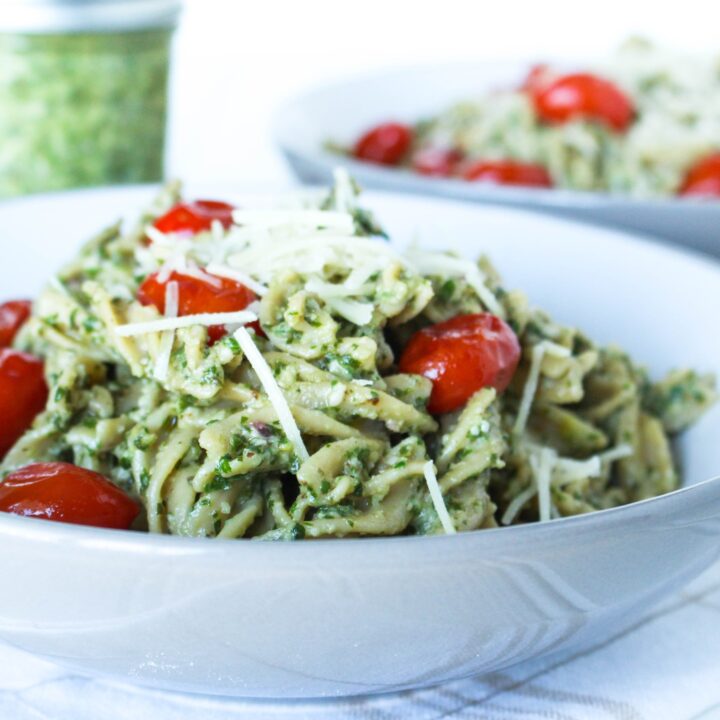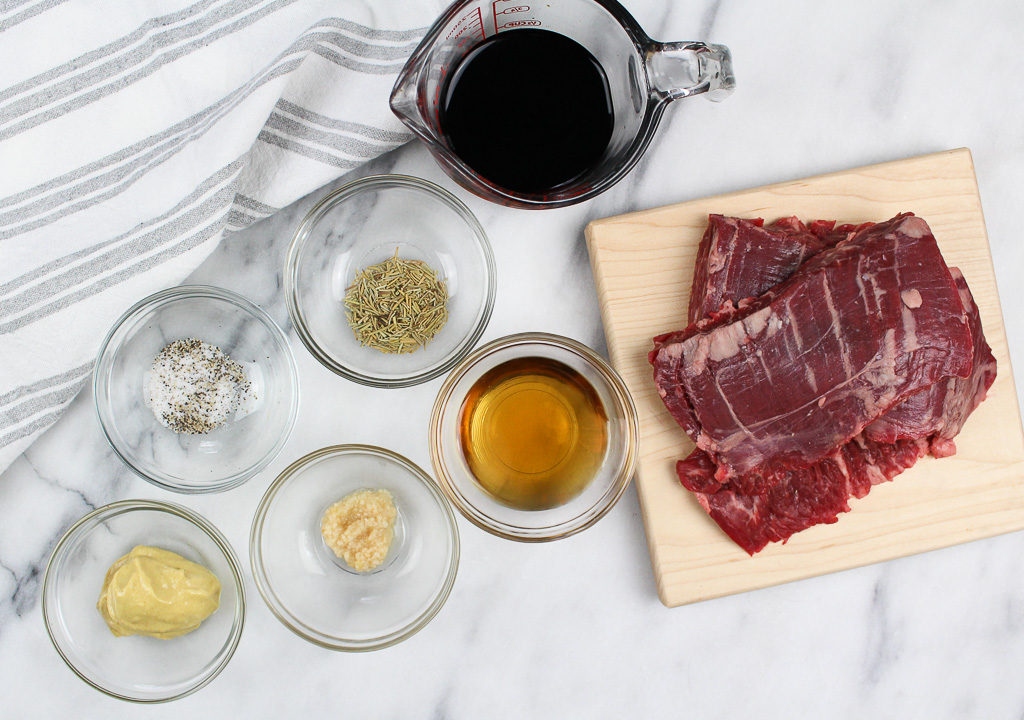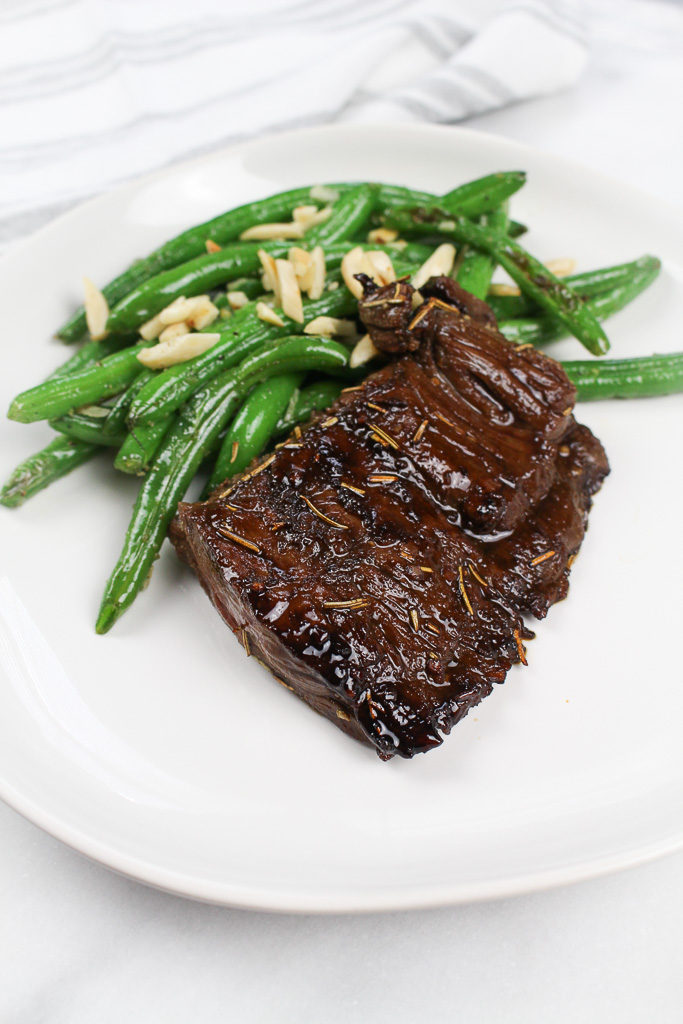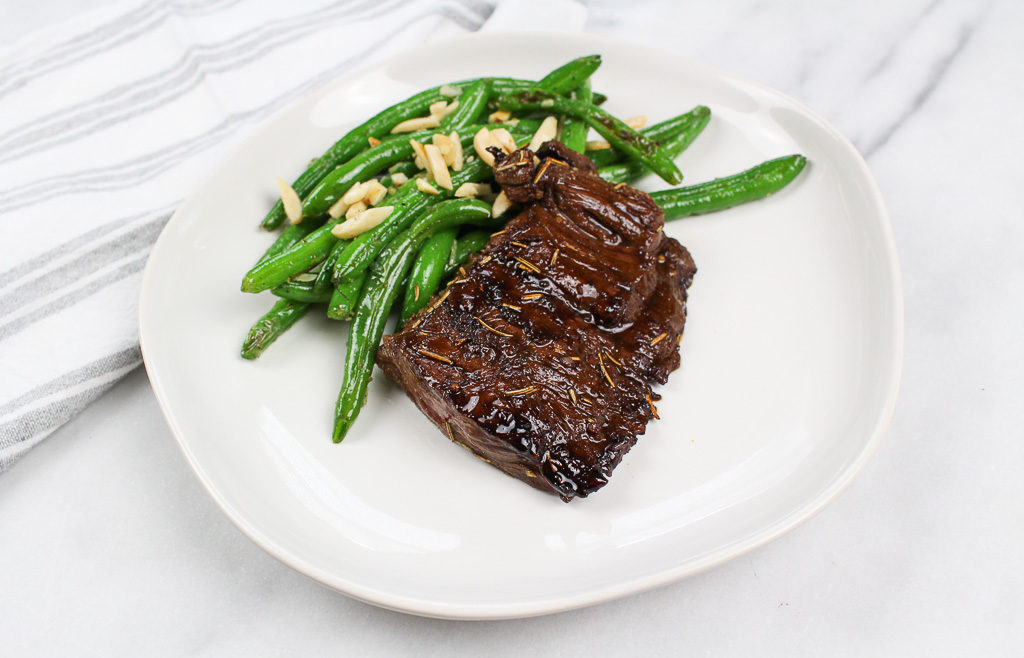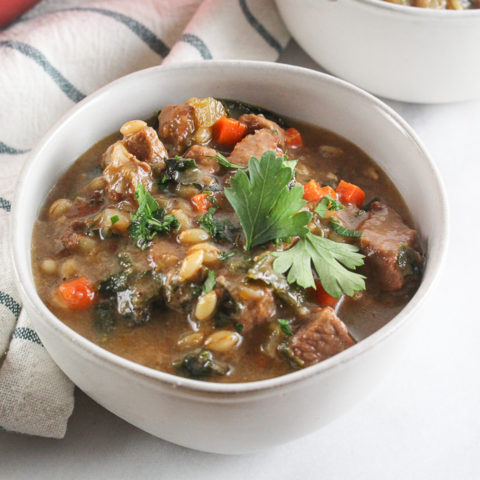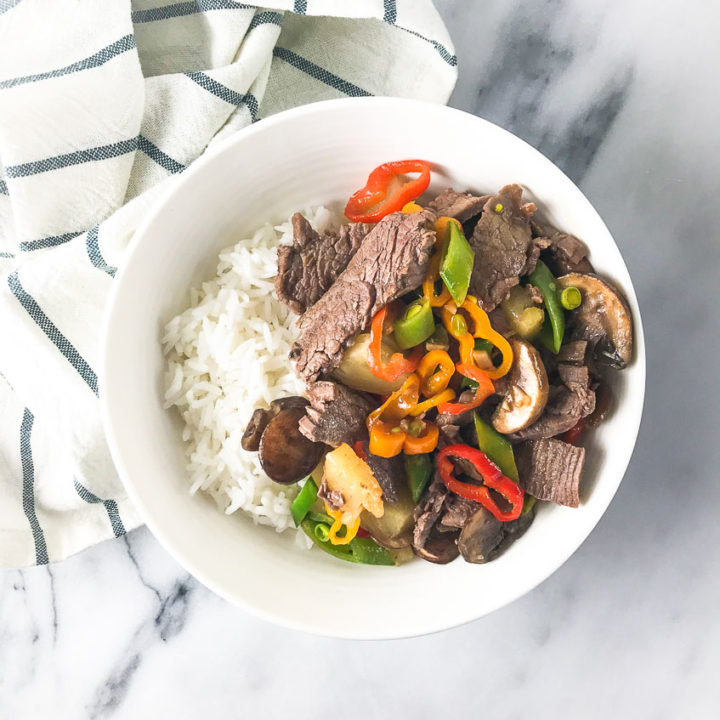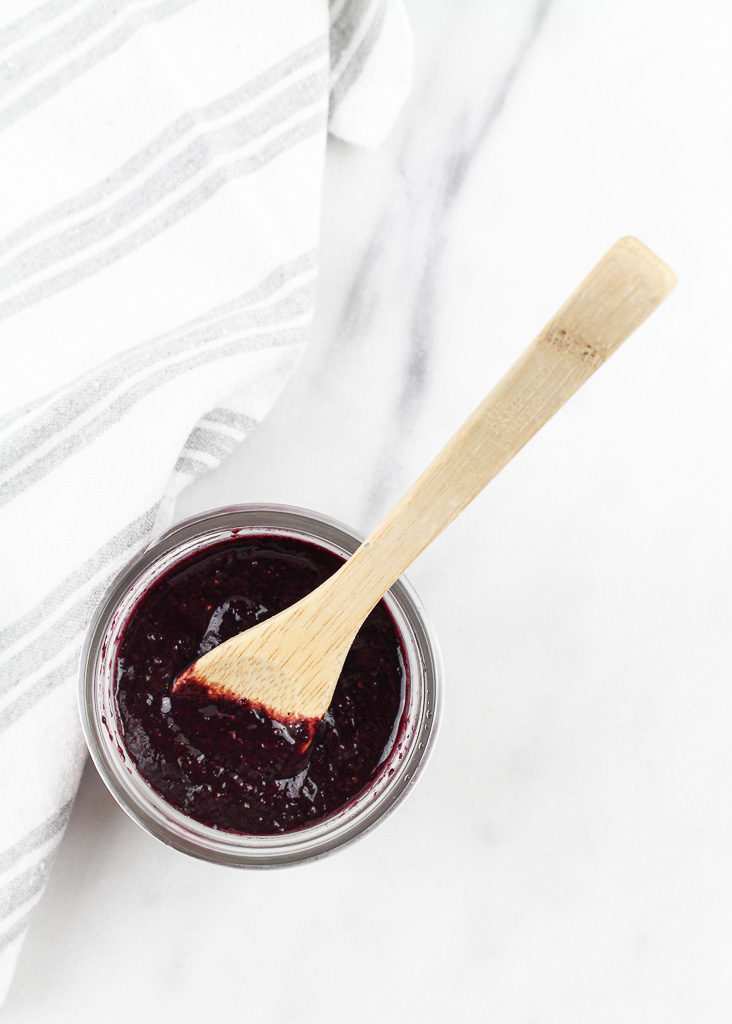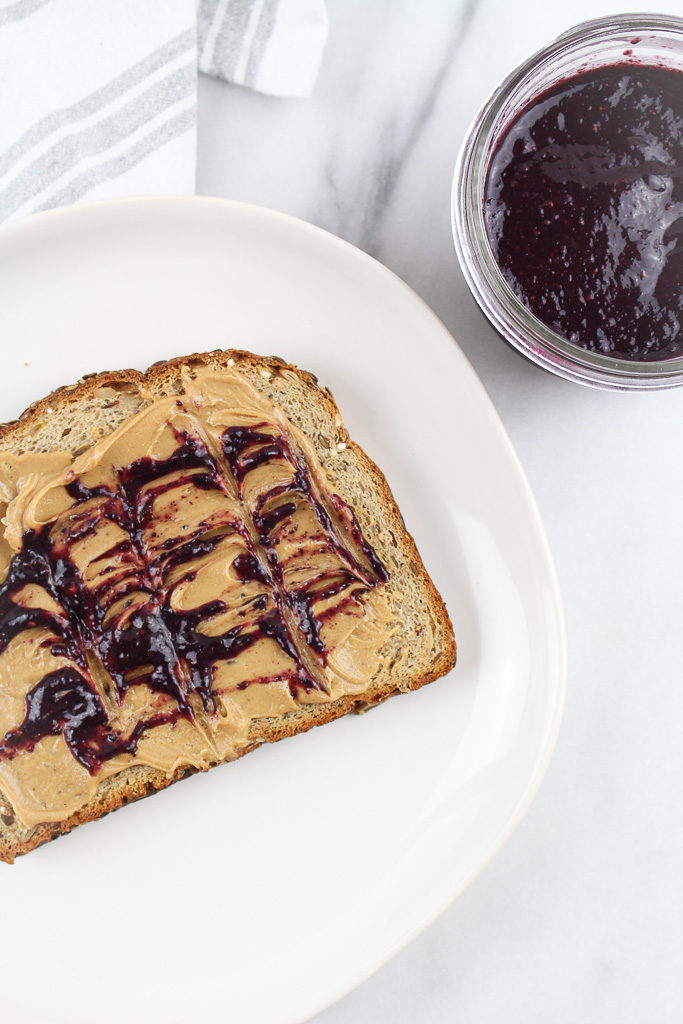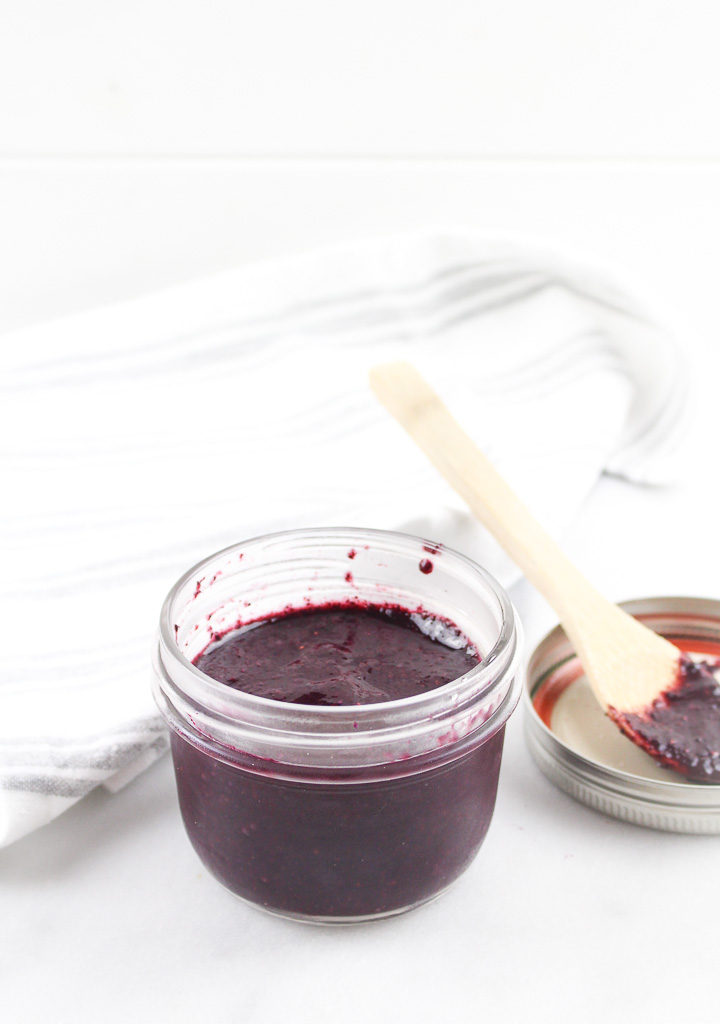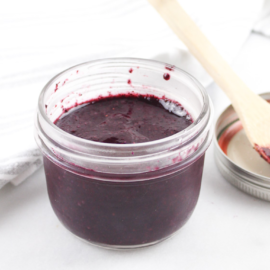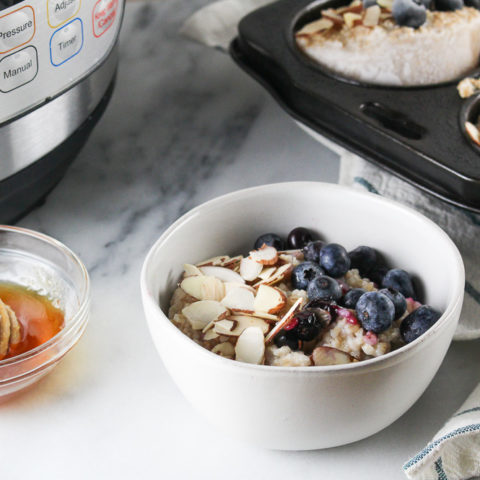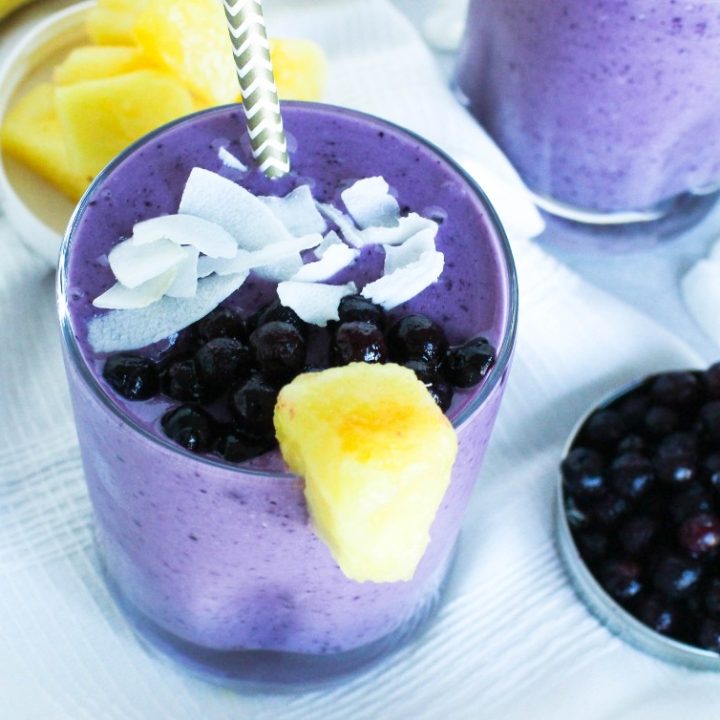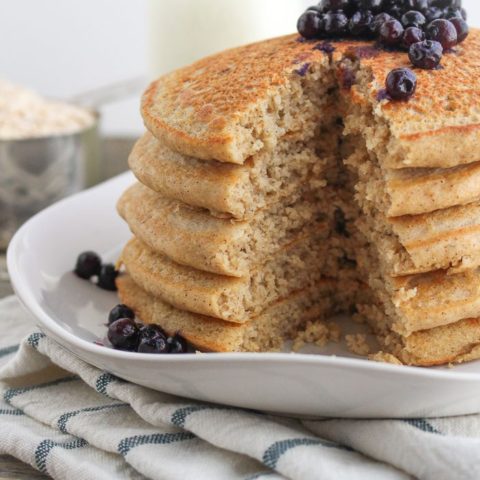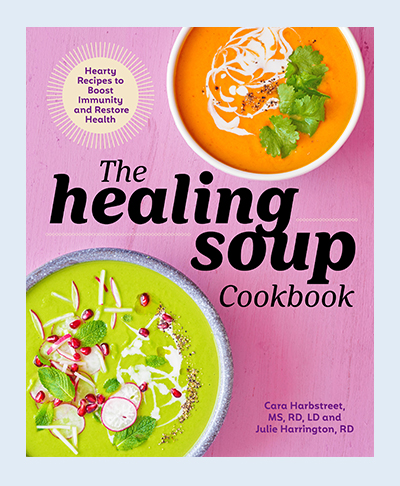This post may contain affiliate links. Read my privacy policy.
Brighten up your salad routine with this refreshing, nutrient-rich salad.
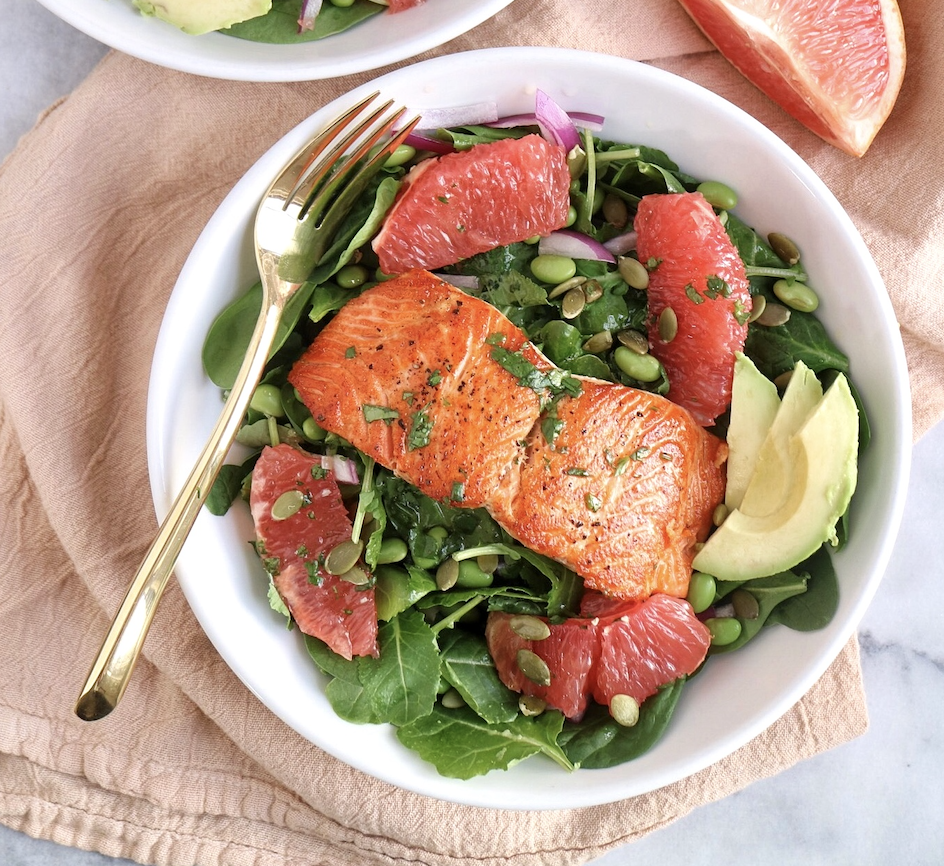
The grapefruit, salmon, and creamy avocado go so well together, and it’s all topped off with a homemade citrus vinaigrette. The salmon and citrus vinaigrette can be prepared in advance of the salad.
Salads don’t have to be boring! You may have already tried my favorite roasted sweet potato kale salad or Greek pasta salad. Salads are all about building layers of flavor and various textures to always get an exciting bite.
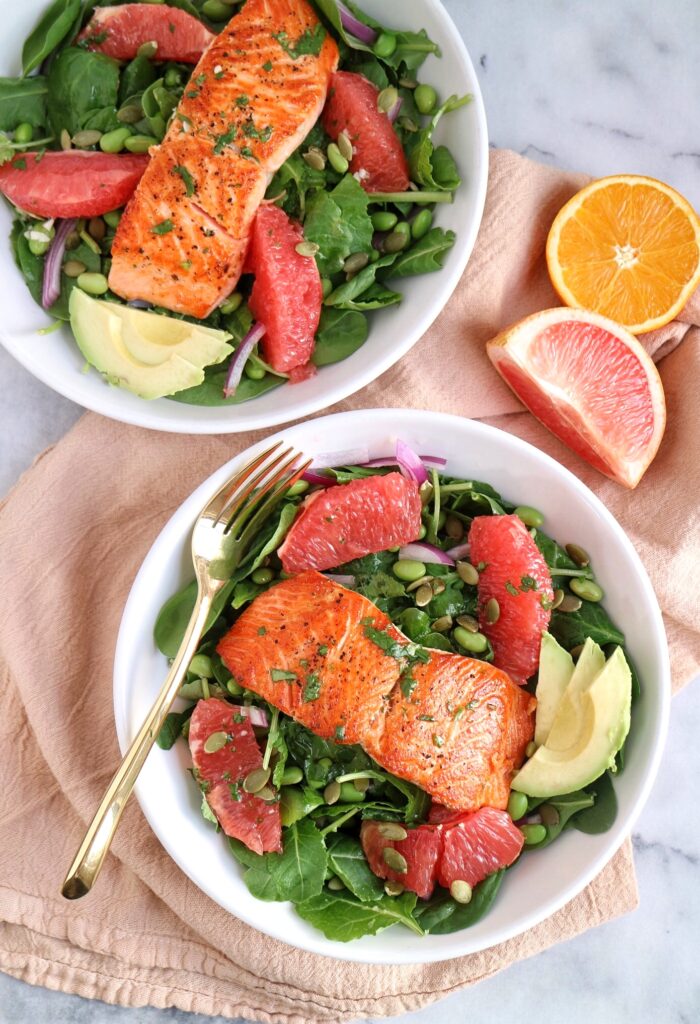
FREE Cooking Class
This recipe was featured as part of Virtual Teaching Kitchen’s FREE virtual cooking classes. Click here to learn more about the Virtual Teaching kitchen.
Ingredients needed:
For the citrus vinaigrette:
- fresh orange juice – squeezed from an orange or all natural juice (no sugar added)
- fresh grapefruit juice – save drippings when segmenting the grapefruit
- olive oil
- fresh cilantro
- white wine vinegar
- lime juice
- garlic – use a microplane to help mince it very fine.
For the salad:
- salmon – I prefer with the skin on!
- salt
- black pepper
- olive oil
- baby kale and spinach – or any greens you like!
- grapefruit – watch video above how to segment
- avocado
- frozen shelled edamame
- red onion
- pumpkin seeds

Health benefits of salmon:
Salmon is one of the best sources of omega-3 fatty acids, which may lower the risk of heart disease and lower inflammation levels in the body. Your body cannot make these acids, so it’s important to regularly include foods like salmon in your diet.
What if I don’t have access to fresh salmon?
No worries! Canned salmon is a good swap to top your salad with!
Not a fan of salmon? Swap with tuna, chicken, steak, shrimp, beans, etc.
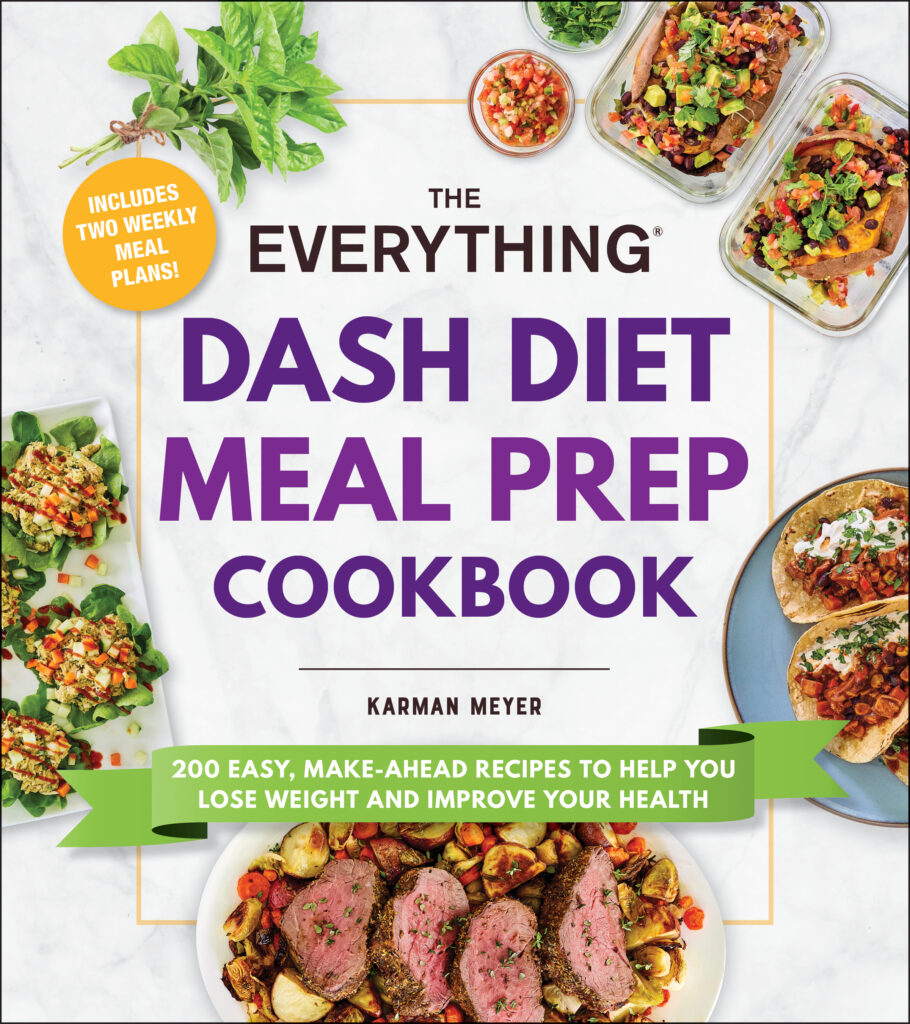
Recipe from The Everything DASH Diet Meal Prep Cookbook by Karman Meyer.
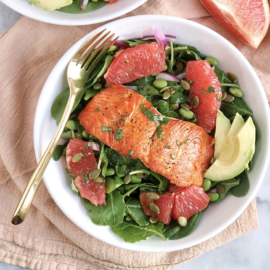
Grapefruit Salmon Salad
Description
Brighten up your salad routine with this refreshing, nutrient-rich salad. The grapefruit, salmon, and creamy avocado go so well together, and it’s all topped off with a homemade citrus vinaigrette. The salmon and citrus vinaigrette can be prepared in advance of the salad.
Ingredients
Citrus Vinaigrette
- 1/4 cup fresh orange juice
- 2 tablespoons fresh grapefruit juice
- 2 tablespoons extra-virgin olive oil
- 1 tablespoon minced cilantro leaves
- 2 teaspoons white wine vinegar
- 1 teaspoon lime juice
- 1 clove garlic, peeled and minced
- 1/8 teaspoon salt
Salmon salad
- 2 (6-ounce) salmon fillets
- 1/8 teaspoon salt
- 1/8 teaspoon ground black pepper
- 1 teaspoon olive oil
- 1 (5-ounce) package baby kale and spinach mix
- 1 medium grapefruit, peeled and segmented
- 1/2 medium avocado, peeled, pitted, and sliced thin
- 1/2 cup frozen edamame, thawed
- 1/4 cup red onion, thinly sliced
- 2 tablespoons unsalted shelled pumpkin seeds
Instructions
- For the citrus vinaigrette: Combine all the ingredients in a small bowl or a liquid measuring cup. Whisk together and set aside.
- For the salmon salad: Place salmon skin side down on a plate. Pat with a paper towel to dry. Season with salt and pepper.
- Heat a 10″ skillet over medium high heat, then add oil. Carefully place salmon fillets skin side down in the skillet and reduce heat to medium. Cook 4-5 minutes on one side until golden brown and salmon easily releases from the pan before turning fillets over with tongs. Continue to cook 3-5 minutes. Once cooked through, place the fillets on a clean plate.
- Prepare salads in two large bowls. starting with the baby kale and spinach mix. Top with grapefruit, avocado, edamame, onion, and pumpkin seeds.
- Store salmon, dressing, and salad in separate airtight containers in the refrigerator up to 3 days, 5 days for the dressing. Salmon does not have to be reheated to eat with the salad. If you choose to reheat it, place it in a microwave safe dish covered with a lid and microwave 2-3 minutes or until internal temperature reaches 165 degrees F.
Notes
Recipe created by Karman Meyer. Recipe published in The Everything DASH Diet Meal Prep Cookbook.


